Nutrition
Home » Nutrition
Fruits
Vegetables
Vitamins
Herbs
Spices
Grains
Legumes
Meat
Nuts
Chinese Medicines
Fruits
| Picture | Fruit | Vitamins | Minerals | BENEFITS | AVOID IF YOU HAVE |
|---|---|---|---|---|---|
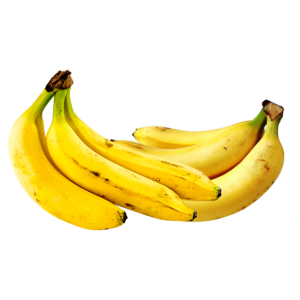 | Bananas | Vitamin C Vitamin B6 | Potassium Phytonutrients Antioxidants | The high potassium helps maintain the normal blood pressure Contains pectin and resistant stack which offers the dietary fiber | If you are on dialysis due to kidney failure Allergies or advised to take a low potassium diet |
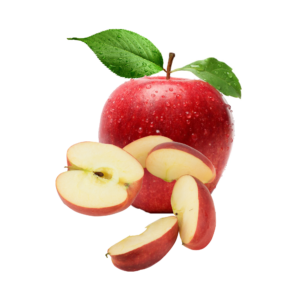 | Apples | Vitamin C Vitamin K Vitamin A Vitamin B1, B2 and B6 Vitamin E | Potassium Manganese Copper Antioxidants | Helps you manage weight They contain soluble fiber that helps lower cholesterol Contain polyphenols that help maintain the health of the pancreas for release of insulin. | Recurrent bloating and gastric problems |
 | Strawberries | Vitamin C Folate | Polyphenols Manganese potassium Manganese | Help maintain good blood sugar Help in normal tissue growth and cell function Antioxidant helps deal with inflammation | If you have a bleeding disorder or planning to have surgery soon Taking a medication moved by pumps |
 | Grapes | Vitamin C Vitamin k Vitamin B6 Vitamin B2 Vitamin B1 | Potassium Copper Manganese | Powerful antioxidant hat deals with inflammation and may prevent chronic diseases May protect from some cancers May lower blood pressure and reduce cholesterol | Taking medications changed by liver such as Cognex, Flexeril and Luvox Taking medication to slow clotting such as Warfarin |
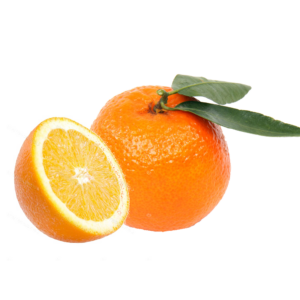 | Oranges | Vitamin A Vitamin C Vitamin B9 | Potassium Calcium | Protects your cells from damage Enables the body to make collagen and heal wounds fast Enables the body to absorb iron and prevent anemia | If taking beta blockers to deal with high blood pressure Taking ivermectin |
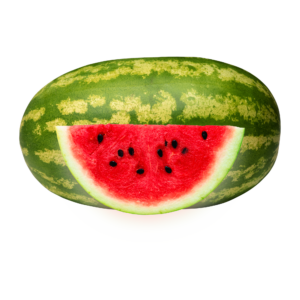 | Watermelon | Vitamin C Vitamin A Vitamin B1, B5 and B6 | Potassium Magnesium Beta Carotene | Contains Lycopene ay help prevent cancer May lower blood pressure and reduce cholesterol May lower inflammation and oxidative stress | If you have an allergic reaction to melons or pumpkins Eat in low quantities if you have diabetes |
 | Lemons | Vitamin C | Iron | May prevent kidney stones May treat anemia May lower the risk of heart disease | |
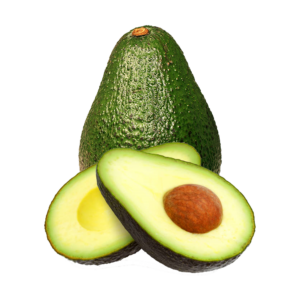 | Avocados | Vitamin B6 Vitamin B9 Vitamin E Vitamin K | Potassium | Increases healthy fats in the body May support eye health as it contains Zeazanthin and Lutein | May decrease the effective ness of drugs that reduce clotting If you have a latex allergy |
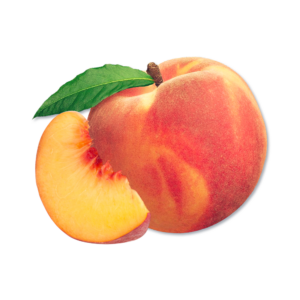 | Peaches | Vitamin A Vitamin C Vitamin E Vitamin K Niacin | Potassium Copper Manganese Phosphorus Iron | May prevent inflammation in the body Contain high fiber that may aid in digestion May help promote heart health | If you are taking medication to slow clotting |
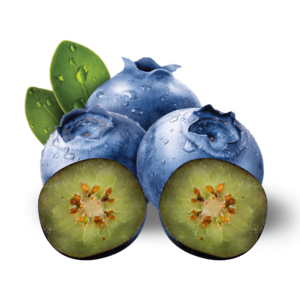 | Blueberries | Vitamin C | May help promote heart health and lower cholesterol May improve memory and reduce depression May improve arthritis symptoms | Take in limited quantities if taking medication to lower blood sugar | |
 | Pineapples | Vitamin B6 Thiamin Folate Niacin Pantothenic Acid Riboflavin Vitamin C | Iron Magnesium Copper | Its enzymes can assist digestion Aids in the absorption of the iron in the body Has antioxidants that help fight oxidative stress | May increase the side effects of tetracycline and Amoxicillin Take in low quantities if taking anti-clotting medication If sensitive to latex |
 | Cantaloupe | Vitamin A Vitamin C Vitamin B3 Vitamin K | Choline Selenium Manganese Choline Phosphorus | Many help manage blood sugar Enables the body to absorb iron Balances the electrolytes in the body | Take low amounts if using medication to lower blood sugar |
 | Cherries | Vitamin C Vitamin A | Potassium | May help improve the quality of sleep May help improve brain health and prevent Alzheimer’s disease May help improve general moos as it has serotonin | Take in low amounts if having regular dialysis |
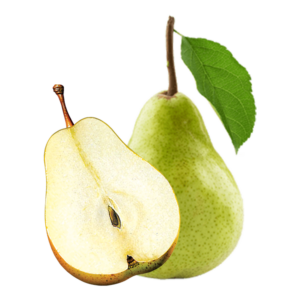 | Pears | Vitamin C Vitamin K Vitamin A | Potassium Copper | May protect against oxidative stress May help reduce hangover symptoms May help reduce weight along with low calorie diet | If you are allergic to high potassium dishes |
 | Limes | Vitamin B6 Vitamin C Thiamine | Iron Potassium | May protect against free radicals May help boost immunity May help promote a healthy skin | If you are allergic to citrus fruits Do not apply on skin if you have increased sensitivity to UV rays |
 | Mangoes | Vitamin C Vitamin A Vitamin E Vitamin B5 Vitamin K Riboflavin Folate Niacin | Potassium Manganese Copper Magnesium | It helps boost immunity Potassium and magnesium helps relax blood vessels and lower blood pressure It has an enzyme amylase that helps in the digestion | Avoid if hypersensitive to potassium and copper |
 | Raspberries | Vitamin C Vitamin B complex | Potassium Manganese Omega 3 fatty acids | May help reduce the length of labor pain May help lower the amount of blood lost in menses Helps lower blood pressure and improve heart health | Take sparingly if taking medication to lower blood pressure Avoid if having hormone sensitive conditions like breast and ovarian cancer |
 | Blackberries | Vitamin C Vitamin A Vitamin K | Potassium Magnesium Calcium | Source of fiber that enhances digestion May help sooth sore throats Help improve the healing speed of wounds | Take in low amounts if taking diabetes medication if you have sensitivity to tannins or feel nauseated when you take a few |
 | Plums | Vitamin C Vitamin A Vitamin K | Phosphorus Magnesium Calcium Potassium | May provide relief from constipation May control blood pressure due to high potassium content May help reduce blood sugar | If you are allergic to plums Take sparingly with diabetes medication |
 | Nectarines | Vitamin A Vitamin C Vitamin K | Potassium Manganese Copper | May help fight against cancer May help maintain blood sugar levels within norm They help flush the toxins | Avoid if taking a potassium restricted diet |
Vegetables
| PICTURES | VEGETABLES | Vitamins | Minerals | BENEFITS | AVOID IF YOU HAVE |
|---|---|---|---|---|---|
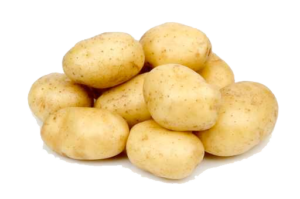 | POTATOES | Vitamin C Vitamin B6 Folate | Magnesium Calcium Phosphorus Iron Zinc | Calcium and magnesium helps in bone health May help maintain normal blood pressure May help deal with inflammation | Avoid or take less if obese or have diabetes Consume in moderation is taking beta blockers |
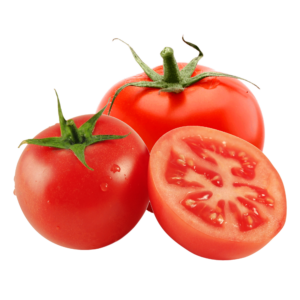 | TOMATOES | Folate Vitamin C Vitamin K | Potassium | Antioxidants helps deal either oxidative stress Helps in maintaining the right blood pressure Plays part in blood clotting and bone health | May interact with medications to slow blood clotting. Therefore avoid tomatoes if taking them |
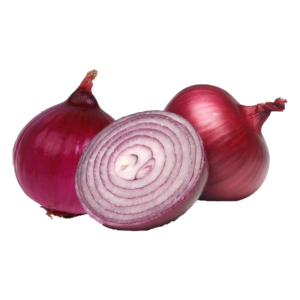 | ONIONS | Vitamin B9 and B6 Vitamin C | Potassium | It has cancer-fighting compounds It has anti-inflammatory properties to deal with oxidative stress May help in the nerve function | Avoid if allergic to sulfur |
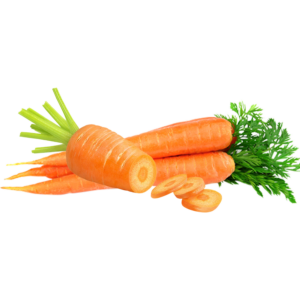 | CARROTS | Vitamin A Vitamin K Vitamin C | Potassium Calcium Iron | Its beta carotene helps protect the eyes The antioxidants fight free radicals in the body The high fiber helps in digestion and dealing with constipation | if allergic to birch or Mugwort pollen If allergic to carrots |
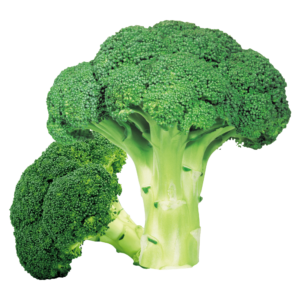 | BROCCOLI | Vitamin A Vitamin C Vitamin K Vitamin C Vitamin B complex | Phosphorus Potassium Selenium | May help reduce inflammation May lower risk of can cancer May aid lower blood sugar | Avoid if you get gassy or regular bowel irritation |
 | BELL PEPPERS | Vitamin A Vitamin C Folate | Potassium Iron | May help reduce inflammation May help manage healthy weight May help with bone health | If allergic to capsicum Have problems with your throat |
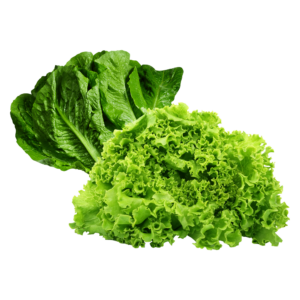 | LETTUCE | Vitamin C Vitamin B6 Riboflavin Thiamine | potassium Manganese Magnesium | May help manage healthy weight May keep you hydrated Helps keep the heart healthy | Some people may be allergic to lettuce |
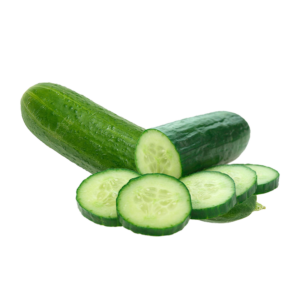 | CUCUMBERS | Vitamin C Vitamin K | Manganese Magnesium Potassium | Promotes hydration Calcium and magnesium helps in bone health Fights against oxidative stress | Avoid if on a potassium restricted diet |
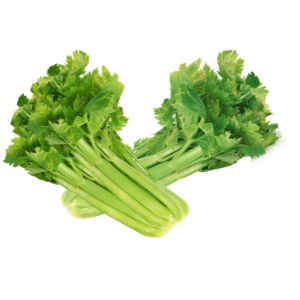 | CELERY | Vitamin A Vitamin K Vitamin C | Potassium Iron Magnesium Sodium | Helps in digestion May help manage healthy weight Lowers inflammation on the body | Avoid is having stomach problems and diarrhea Take little amounts if on a low sodium diet |
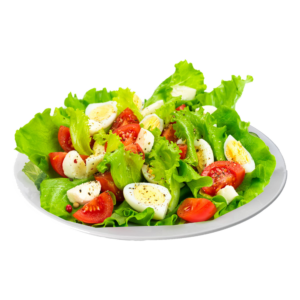 | MIXED SALAD | Vitamin A Vitamin C Vitamin K Vitamin B complex | Potassium Magnesium calcium Manganese | A good source of fiber for aiding digestion May help lower blood pressure and maintain the blood vessels May help maintain healthy weight | if taking beta blockers or having a dialysis |
 | CORN | Vitamin B6 Vitamin B5 Folate Niacin | Copper Zinc Phosphorus Magnesium Potassium | It can aid with digestion May promote eye health Whole grain has good quality Carbs | Avoid if having iron deficiency as it lowers absorption of the same |
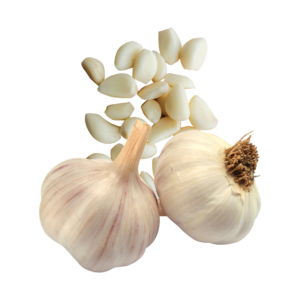 | GARLIC | Vitamin C Vitamin B1, B6 | Selenium Calcium Phosphorus Iron | May help lower the blood sugar May prevent the hardening of arteries Lowers that amount of bad cholesterol in the body | Avoid if having sulfur sensitivity Take little amounts if on drugs such as Nydrazid and Invirase |
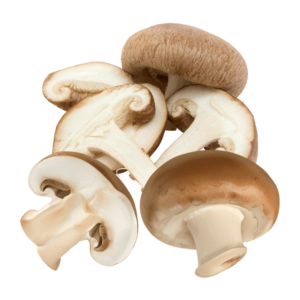 | MUSHROOMS | Vitamin D Vitamin B6, B5, B9, B1 | Potassium Zinc Copper | May help with digestion Good for the formation of red blood cells May protect the heart and blood vessels | if on a low potassium diet |
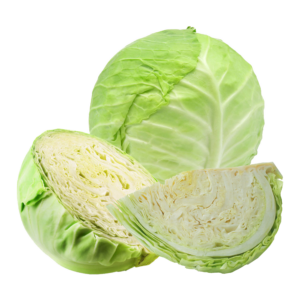 | CABBAGE | Vitamin K Vitamin C Vitamin B6 Folate | Calcium Potassium Magnesium Manganese | Helps fight inflammation Vitamin C helps in absorption of iron in the body The fiber helps in digestion | Take low amounts if you have thyroid disease May interact with blood thinners. Take small amounts |
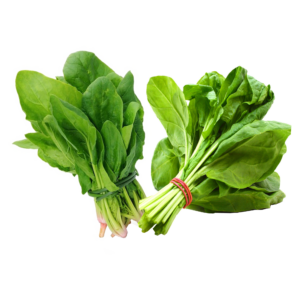 | SPINACH | Vitamin A Vitamin C Vitamin K | Iron Calcium | Helps strengthen the bones and nerves Helps in blood clotting after a cut Helps build blood due to iron | Avoid if taking blood thinners Take limited amounts if having kidney stones |
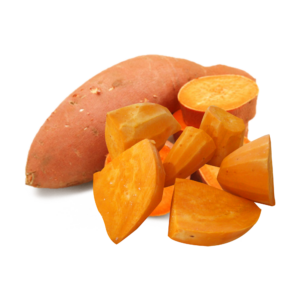 | SWEET POTATOES | Vitamin A Vitamin C Vitamin C Vitamin E | Sodium Potassium Iron Calcium | It is good for the eyes Can help manage blood sugar May help manage stress levels | Take in moderation if on a low sodium and potassium diet |
 | GREEN BEANS | Vitamin C Vitamin K Folate | Iron Calcium Phosphorus Potassium | Fights against oxidative stress May help improve the heart health May aid in digestion | Avoid if having irritable bowel syndrome |
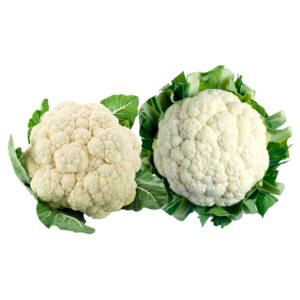 | CAULIFLOWER | Vitamin C Vitamin K Vitamin B6 Folate | Phosphorus Potassium Magnesium Calcium | May help prevent constipation May lower risk of cancer May help prevent inflammation | Take low amounts if suffering from flatulence Avoid if taking blood thinners |
 | GREEN ONIONS | Vitamin C Vitamin K | Zinc Potassium Copper | May help manage blood sugar Good for weight management May help prevent inflammation | Avoid if sensitive to sulfur |
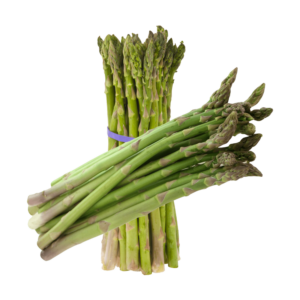 | ASPARAGUS | Vitamin A Vitamin C Vitamin K Vitamin B9 | Potassium | May help lower blood pressure and maintain the blood vessels Improves digestion Supports a healthy pregnancy | Take in moderation if on a low sodium and potassium diet |
Vitamins
| Name | Benefits | Used for what main issues | Common Side Effects |
|---|---|---|---|
| Vitamin A | Protects eyes from age-related decline and night blindness Supports a healthy immune system Supports healthy bone growth Reduces the risk of acne | Eye treatment regiments Hair preparations Skin and beauty products | Visual disturbances if taken in large quantities Poor appetite Headache and increased sensitivity to sunlight |
| Vitamin B1 | Enhances cell metabolism Prevents congestive heart failure Helps maintain healthy weight | Treatment of beriberi disease Improve health in cases of malnutrition Added to congestive heart failure treatment | Excessive thirst Increased urination Nausea and abdominal discomfort |
| Vitamin B2 | Boosts immunity Helps in the breakdown of fats, carbohydrates and proteins Enhances the health of the gut May help deal with migraine and headaches | Preventive measures to those at risk of cataracts Treatment of carpal tunnel syndrome Used in detox preparations Immune booster to those recovering from long illness | Diarrhea The blood may turn yellow-orange May cause an increase in urine Dry mouth |
| Vitamin B3 | Helps lower high levels of cholesterol May boost the brain function May help strengthen joints and deal with arthritis pain May prevent type 1 diabetes | Treatment of pellagra Type 1 diabetes treatment Joint medications anti-anxiety and depression formulations | Rapid heartbeat Abdominal cramps and stomach problems Liver damage Pain in the joints |
| Vitamin B5 | A catalyst for biochemical reactions Aids in proper functioning of the nervous system May help in enhancing hormonal levels Aids in maintaining a healthy digestive tract | UUsed in nerve treatment formulations Treats hormonal imbalance and deficiencies Used in detox formulations | May cause lack of energy and weakness May trigger onset of Type 2 diabetes Leads to increased joint and muscle pain |
| Vitamin B6 | Helps improve mood and fight anxiety May help increase hemoglobin in the blood Treats symptoms of morning sickness Promotes brain health and reduces the risk of Alzheimer’s May lower the symptoms of PMS such as fatigue, anxiety and mood swings | Treatment of premenstrual syndrome Treatment of anemia Treating nausea in expectant women Treating memory loss issues Used in depression medications | Increased sleepiness Stomach ache with abdominal cramps Tingling on feet and hands Loss of appetite |
| Vitamin B7 | It enhances the liver metabolism It strengthens hair and nails It promotes the function of the nervous system Aids cell growth and maintaining the mucous membrane | Nerves treatment formulations In skin and hair treatment products (taken by mouth) To enhance recovery after a long illness Liver treatments | May cause problems with the release of insulin May cause digestive upset Causes skin rashes Can cause kidney problems |
| Vitamin B8 | May relieve symptoms of panic such as dizziness, sweating and intense fear May help increase dopamine and serotonin production May increase omega -3 fatty acids in the body May help correct hormonal imbalance in women May prevent gestational diabetes (diabetes in women during pregnancy) | Used to control panic and treat depression used in some mental health treatments Used as a food supplement to improve brain and nerve function Added to hormonal therapy treatments | Excessive thirst Blurry vision Nausea and vomiting |
| Vitamin B9 | Aids in the development of red blood cells Helps in the repair of DNA and other genetic material Prevents neural deficiencies such as spina bifida in growing infants | Used in anemia treatments Treatment after chemo and radiotherapies Used to enhance baby growth in expectant mothers | It may lead to behavior changes May cause irritability, confusion and sleep disorders Nausea, stomach ache with abdominal cramps |
| Vitamin B12 | Helps enhance the brain growth of fetus May prevent the progression of osteoporosis May help stop macular degeneration May improve symptoms of depression and mood swings | Offered as a supplement to expectant mothers Added to eye treatment formulations Treatment of done density issues in women at their menopause Added to depression treatments | Mild diarrhea Nausea and vomiting Headaches Itching and skin rash |
| Vitamin D | It enhances calcium absorption for strong bones and teeth Helps reduce depression It boost healthy weight loss Improves the general body health | Treatment of weak bones Added to weightloss regiments | Increased fatigue General body weakness Dry mouth accompanied by a metallic taste |
| Vitamin E | Increases the cell life slowing down aging Enhances a radiant skin A strong antioxidant that helps fight free radicals in the body | Added to skin care products Used in anti-aging formulations Added to detox formulations | Headaches and increased fatigue Blurred vision Diarrhea and vomiting |
| Vitamin C | May boost immunity against common illness May lower the risk of heart disease Helps prevent iron deficiency May lower uric acid levels in blood, which cause gouts It is good for supple, radiant skin | Used in beauty products Added to vitamin supplements for expectant mothers Added to gout and arthritis treatments | Stomach ache with abdominal cramps Fatigue and sleepiness or sometimes insomnia Flushing Nausea and diarrhea |
| Vitamin K | It helps maintain healthy, strong bones It enhances memory and recall Helps lower the blood pressure | Used in treating osteoporosis Treatment of dementia To lower high blood pressure | A weak or rapid pulse Changes in taste of familiar items May lower blood pressure below safe levels Shortness of breath |
Herbs
| Picture | Name | Benefits | Used for what main issues | Common Side Effects |
|---|---|---|---|---|
 | Sage | May Improve Brain function and memory May help deal with dental plaque May lower symptom of menopause May help reduce blood sugar May lower amount of bad cholesterol | Various cancers Dental hygiene Dealing with hot flushes Type 2 diabetes | Restlessness Dizziness Rapid heart rate Vomiting |
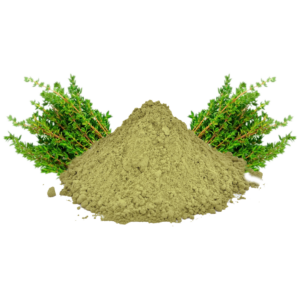 | Thyme | May help boost immunity May help boost your mood May help stop coughing May lower blood pressure | In colds and flu Deal with vitamin A and C deficiency Antiseptic and mouthwash Managing high blood pressure | Stomach upset Headache Dizziness |
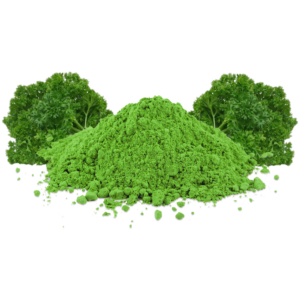 | Parsley | A powerful antioxidants May help support bone health May slow the progression of cancer May help protect your eyes | Management of cancer Treating osteoporosis Vitamin A deficiency Inflammation | Increase skin sensitivity to sun May cause anemia if taken in large quantities |
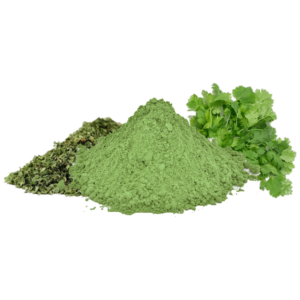 | Cilantro | May help defend against illnesses from tainted food May help lower blood sugar May reduce symptoms of dementia and seizure attacks May be effective in reducing anxiety | Alzheimer’s and Parkinson’s disease Type 1 diabetes Defense against Salmonella in food Reduce panic attacks | May slow blood clotting Some people may experience hives and facial swelling Itching when applied on the skin |
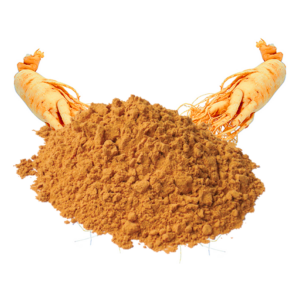 | Ginseng | May help reduce inflammation May improve the brain function May fight against oxidative stress in blood vessels May strengthen the immune system | Erectile dysfunction Fight increased fatigue Enhance the immunity Enhance cognition | sleep problems Rapid heartbeat Changes in blood sugar and pressure |
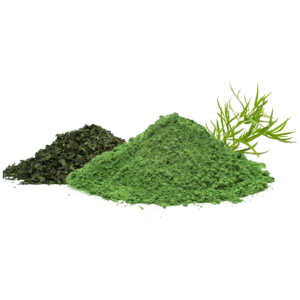 | Tarragon | May increase insulin sensitivity May help improve sleep patterns May help increase appetite It is a good pain reliever from inflammatory conditions | Inhibiting growth of bacteria in stored food Reducing pain in osteoarthritis Reducing inflammation in the body Type 1 diabetes | It may slow blood clotting Likely unsafe for long-term intake in expectant mothers Some people may have allergy to its components |
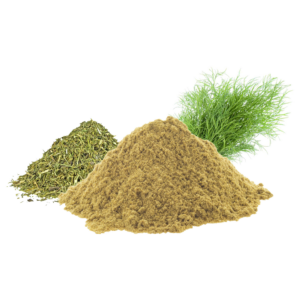 | Dill Weed | May help deal with vitamin deficiencies It is a powerful antioxidant May help deal with the heart disease | Dealing with anemia Reducing inflammation from joint problems Heart disease | Some people are allergic to the herb Itchy mouth Swollen red bumps on the tongue |
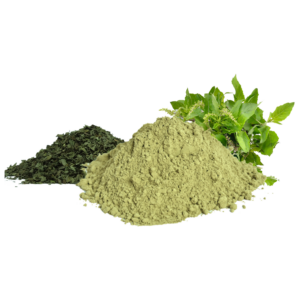 | Holy Basil | Helps Fight Infections Boosts Immunity Prevent Allergies and Nasal congestion | Used to treat bronchitis Vomiting, nausea and diarrhea Its leaves with black pepper reduces symptoms of malaria | It can cause low blood sugar if taken for long May cause liver problems in some people May slow blood clotting |
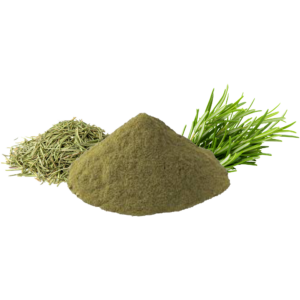 | Rosemary | It is a good source of Vitamin A, B6 and C Promotes hair growth It is a cognitive stimulant that improves memory and alertness Deals with digestion problems | Treating indigestion, heartburn and loss of appetite Helps in enhancing hair growth and slowing down the progression of baldness Helps boost concentration Deals with inflammation | May lead to stomach irritation May lead to the increase in menstrual bleeding Excessive intake may cause vomiting |
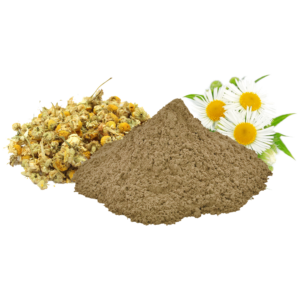 | Chamomile | May improve the sleep quality May boost immunity May alleviate the symptoms of cold and flu May reduce pain from periods and muscle spasms May help deal with anxiety and stress | Treating insomnia and sleep apnea Enhancing recovery fro long-term illnesses Relief during menses Pain relief with muscle aches Enhance concentration in an exam or interview | Some people have allergic reactions A burning feeling in the throat or tongue Mild skin irritation when applied to the skin |
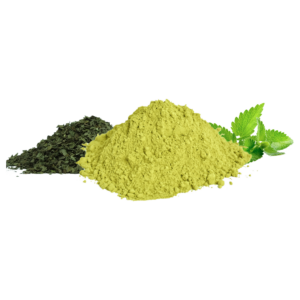 | Lemon Balm | Helps deal with anxiety May deal with Insomnia May help deal with indigestion May help treat dementia and treat memory loss | Treatment of cold sores Used to manage stress Helps calm nerves during | Overly increased appetite Wheezing Stomachache and nausea |
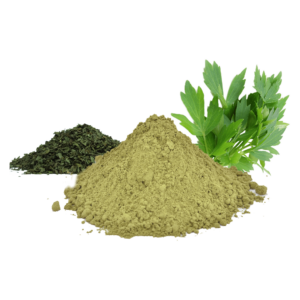 | Lovage | May help with indigestion May help treat diabetes nephropathy May relieve symptoms of cough and flu | Food and drink flavoring Fragrance in soaps and cosmetics Kidney issues from diabetes managing flu and cold | Make increase sensitivity to the sun May cause uterine contractions before the due date |
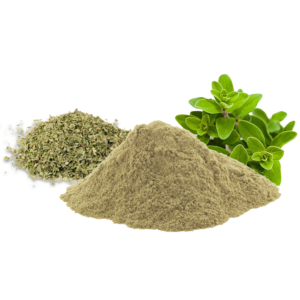 | Sweet Marjoram | It has anti-inflammatory and antioxidant properties Reduces the microbial activity in the gut May help regulate hormones and menstrual cycle May deal with digestive issues | Treatment of inflammatory conditions like arthritis Indigestion Hormonal imbalance | May cause skin or eye irritation Some people have allergic reactions Long term use may cause stomach problems |
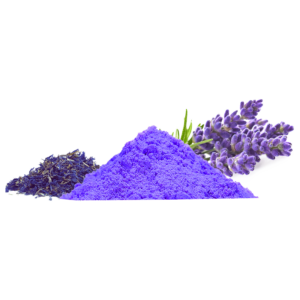 | Lavender | May improve mood disorders May boost the quality of your sleep May sooth the lower abdomen during the menses It has inflammatory and antibacterial effects on skin | Deals with anxiety Fighting acne Menstrual discomfort Insomnia | Constipation Headache Increased appetite |
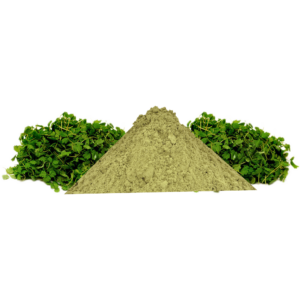 | Salad Burnet | Helps improve digestive health May help deal with mouth sores May enhance the hearing of burns and wounds | Burns and cuts As a mouthwash Treatment of diarrhea | Constipation with excessive intake |
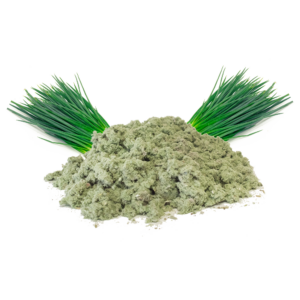 | Chives | May deter cancer cells from growing Come with Vitamin K for enhanced bone density Has folate that helps improve memory | Treatment of dementia and Alzheimer’s Osteoporosis Management of cancer | Some people may have allergic reactions to its components such as sulfur Stomach upsets |
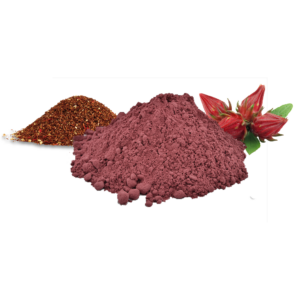 | Sorrel | May reduce pain and inflammation May open up nasal passages in colds May be used as a diuretic | Management of edema Relieving symptoms of cold and flu Management of joint and muscle pain | Stomach upsets Increased risk of kidney stones in large amounts |
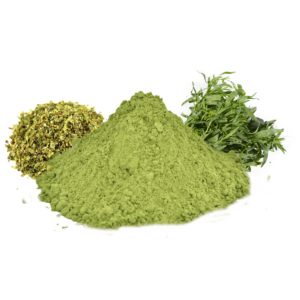 | Winter Savory | May help reduce the sex drive May help treat intestinal disorders May bring relief to a sore throat | Used as a tonic Treatment for flatulence and indigestion Colds and Flu | A dry mouth if taken in large quantities |
 | Violet | May help reduce the blood pressure May slow the growth of cancer cells May aid digestion May relief symptoms of colds and flu | Colds and Flu Management of cancer Reducing inflammation Managing blood | Stomach upset if taken in large quantities |
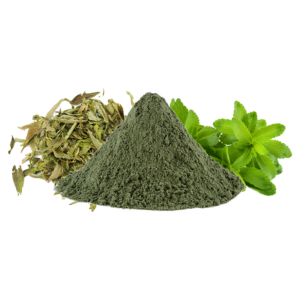 | Stevia | May help lower the blood pressure May help in weightloss May help in Type 2 diabetes May stimulate the heart rate | High blood pressure Weight management Type 2 diabetes | nausea Bloating dizziness Numbness if taken in high quantities |
Spices
| Picture | Name | Benefits | Used for what main issues | Common Side Effects |
|---|---|---|---|---|
 | Cinnamon | Lowers Blood Sugar in people with Type II Diabetes It helps deal with inflammation It reduces blood pressure Helps promote growth of beneficial bacteria in the gut | Type II Diabetes High blood pressure Dealing with digestive issues Inflammatory diseases like arthritis | May lower blood pressure below safe levels Interacts with some medications May cause mouth sores |
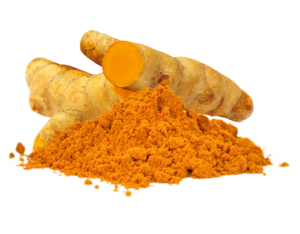 | Turmeric | Powerful Anti- Inflammatory It leads to improved brain function It is a powerful antioxidant It lowers the risk of heart disease May help shrink drug-resistant tumors | To shrink the size of tumors Treat the Alzheimer’s disease Heart failure Fighting depression | Can lead to stomach ache Constipation or yellow diarrhea May aggravate liver disease or biliary disease |
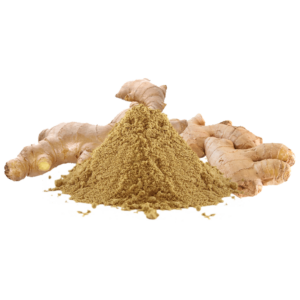 | Ginger | Relieves Nausea Indigestion Heart Burn Motion sickness | reduce nausea in expectant mothers and in people taking antiretroviral Decreases pain in painful menstrual periods Pain reduction in osteoarthritis | Interact with anticoagulant and pressure-lowering medication May cause a burning sensation in the mouth It may slow blood clotting leading to excessive bleeding |
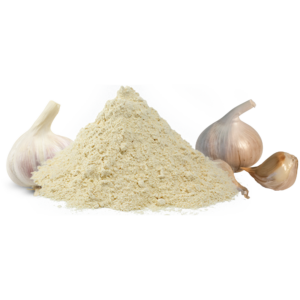 | Garlic | Heart health- Keeping blood vessels flexible May reduce cholesterol and triglycerides Fight colds and general sicknesses | Atherosclerosis (hardening of arteries) Lung and breast cancer Add flavor to food High levels of cholesterol | Unpleasant body odor easy bruising and bleeding heart burning and a burning sensation in the throat vomiting, gas or nausea |
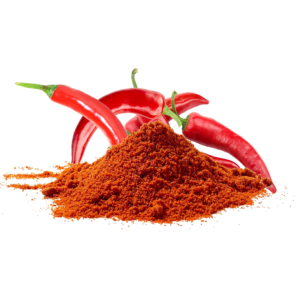 | Cayenne | Pain relief due to Capsaicin May Reduce Appetite and increase fat burning Reduces itching in people with psoriasis May have Anti Cancer Properties | Psoriasis treatment Relieving muscle pains Boosting metabolism to lose weight Reduce indigestion | stomach upset Flushing and sweating Running nose Diarrhea |
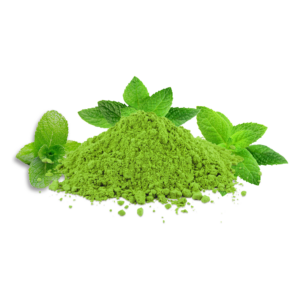 | peppermint | Relieves IBS (irritable bowel syndrome) pain by Relaxing the muscles in the colon Reduces abdominal bloating Improves Blood Sugar Control Relieves tension headaches and migraines | Irritable Bowel Syndrome Stomach upsets Type 1 Diabetes Headaches and migraines | Dry mouth Nausea and vomiting Heartburn |
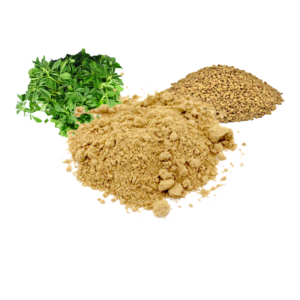 | Fenugreek | Relieves constipation and loss of appetite Improves libido or low testosterone May lower pain from arthritis and muscular problems Helps manage painful menses | Pain management Digestive issues such as gastritis and constipation Dealing with hot flushes in menopause Libido problems | Dizziness Maple-like odor on breast milk and urine Dizziness |
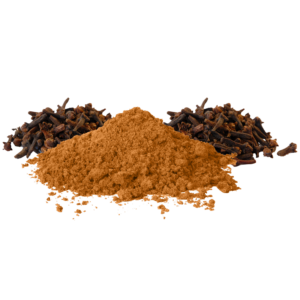 | cloves | It is high in antioxidants May help slow the growth of tumors May kill harmful bacteria in the mouth May improve liver health | Used in body detox Managing various types of cancers Used as a mouthwash Weight management | Erection problems and delayed ejaculation itching and mild skin irritation Sore gums |
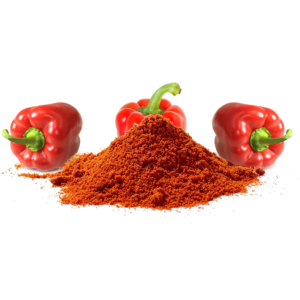 | Paprika | Promotes a healthy vision May help reduce inflammation May lower cholesterol levels It has anticancer effects | Managing various cancers Used as a tonic Diabetes management | Dry mouth Irritation in the throat Stomach upsets |
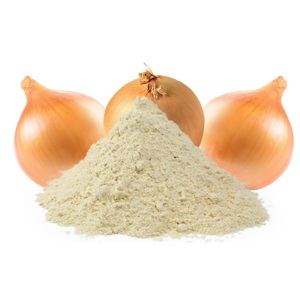 | Onions | May help fight inflammation May reduce cholesterol levels in the blood May lower the risk of heart disease May reduce high blood pressure | May slow blood clots May lower blood sugar below the norm if taken in high amounts May cause eye and skin irritation when taken raw |
|
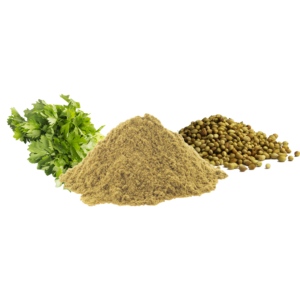 | Coriander | May lower blood sugar Contains antioxidants that fight inflammation May lower the risk of heart disease Helps prevent brain inflammation | Management of Type 2 diabetes Managing inflammatory conditions such as arthritis and Parkinson’s disease Used as a diuretic | Some people have allergic reactions that cause hives and nasal swelling May lower blood sure in non diabetic users below the normal |
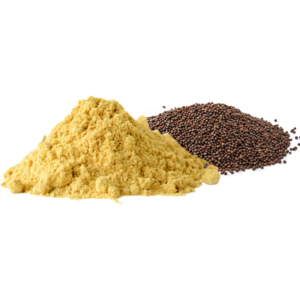 | Mustard | Contains antioxidants that fight inflammation May slow the growth of cancer cells It has high fiber that helps in digestion Packed with calcium and magnesium for strong bones | Managing inflammatory conditions such as arthritis, multiple sclerosis and Parkinson’s disease Strengthen weak bones and teeth Enhancing the diet’s fiber content | Irritation in the throat Drowsiness or dizziness Breathing difficulties Skin damage |
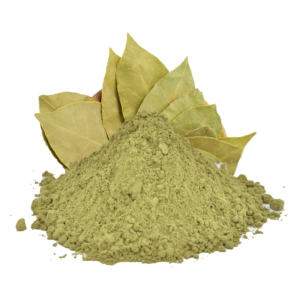 | Bay leaves | Relieves respiratory conditions Improves digestion Treats hair issues It has anti-inflammatory properties | Colds and flu Flatulence, indigestion and bloating Dandruffs and hair breakage | It may interfere with blood sugar control in diabetic people It may slow the central nervous system, after surgery |
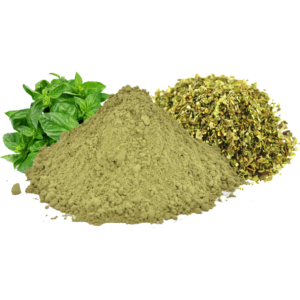 | Oregano | It may help eliminate free radicals Prevents growth of bacteria in food It helps stop cancer cells from growing May help reduce inflammation | Used as food preservative Helps with inflammatory conditions and allergies Management of cancer conditions | May cause stomach upset May cause intestinal tract irritation Causes burning and skin irritation |
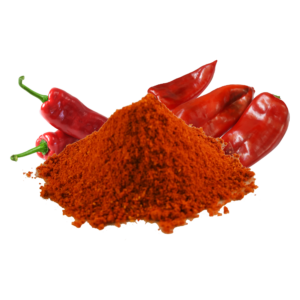 | Red pepper | May improve skin and eye health May help deal with inflammation in the guts and joints It helps accelerate weight loss | Weight management Helps with inflammatory conditions and allergies Food additive | Burning sensation Diarrhea and stomach pain |
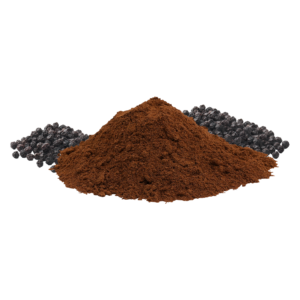 | Allspice | May help deal with indigestion Helps lower high blood pressure Helps deal with menstrual cramps Deals with abdominal pain | High blood pressure Dealing with indigestion and intestinal gas Mouthwash Flavoring in toothpastes and mouthwashes | Some people have allergic reactions to the spice It may slow blood clotting after a surgery Its effect on expectant and lactating mothers is unknown |
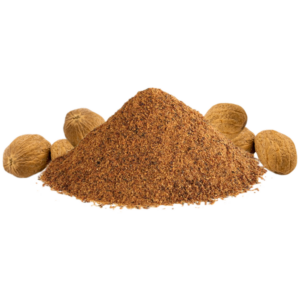 | Nutmeg | Contains antioxidants that fight inflammation May enhance the sex drive It also helps boost mood May help improve blood circulation | Erectile dysfunction Helps with inflammatory conditions and allergies Used as an aphrodisiac | May cause disorientation and double visions when taken in very large amounts May be unsafe for expectant mothers in its concentrated form |
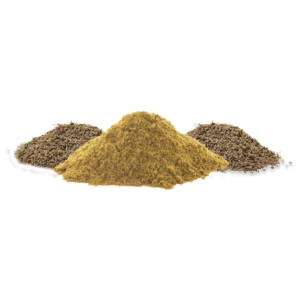 | Cumin | Fights parasites and bacteria It may help reduce pain and inflammation May lower cholesterol levels Improves the symptoms of IBS | Irritable bowel syndrome Weight management Helping in quick recovery after prolonged illness Stimulating the nerves if feeling numb | It suppresses tester one levels May trigger a miscarriage if taken in large quantities |
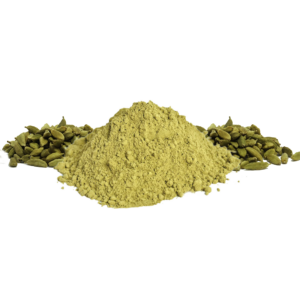 | Cardamom | Lowers the blood pressure It helps fight inflammation May help with ulcers and digestive problems May prevent cavities and treat bad breath | Used as a diuretic Used in oral medication and toothpaste Treating ulcers Managing liver and digestive system inflammation | May lower blood pressure significantly in healthy people May cause a dry mouth |
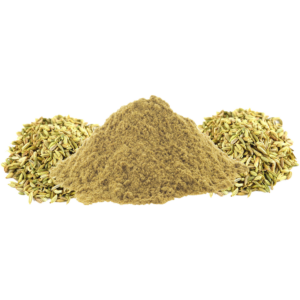 | Fennel seeds | It helps fight inflammation as it contains polyphenol antioxidants May help curb appetite to manage weight It has cancer fighting capabilities and suppresses growth of cancer cells May help increase breast milk production by increasing prolactin May relieve menopausal symptoms | Weight management supplement Management of cancer conditions Used to enhance milk production in expectant mothers | Tightness in throat and chest Chest pains Hives Rash and itchy skin |
Grains
| PICTURES | GRAINS | DESCRIPTION | PROTEIN PER 100 GRAMS | Vitamins | Minerals | BENEFITS | AVOID IF YOU HAVE |
|---|---|---|---|---|---|---|---|
| Grain foods are typically categorized either as whole or refined. Whole grians are grains that have been minimally processed to still contain the bran, germ, and endosperm, whereas refined grains only contain the endosperm. The endosperm makes up about 85 percent of a wheat grain, meaning that just 15 percent of the grain contains all of its fiber and most of its nutrients. Whole grains contain the bran (outermost layer), which contains fiber and B vitamins; the germ (interior), which contains oils, vitamins, proteins, minerals, and antioxidants; and the endosperm (interior), which contains carbohydrates and protein. Refined grains can come from he same plant as whole grains, they’re just missing the germ, bran, and all the nutrients that go along with them. they have a longer shelf life than whole grains, since the oily germ tends to become rancid when exposed to light and heat. | |||||||
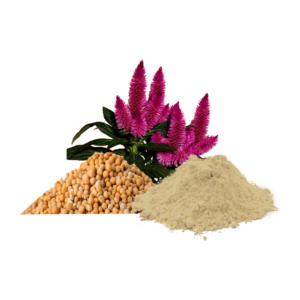 | AMARANTH | AMARANTH (Amaranthus cruentus) was a staple crop for the Aztecs, now popular in gluten-free baking. Not a “true” grain (because it doesn’t belong to the Poaceae family), amaranth is safe for those with celiac disease. It’s also a complete protein, meaning that it contains all nine essential amino acids, including lysine, which is missing from most grains. Tiny amaranth kernels look kind of like couscous, and have a peppery taste. They’re about 14 percent protein and delicious in gluten-free amaranth muffins and puffed amaranth granola bars. | 7 grams | Vitamin C Vitamin K Vitamin E Vitamin B 6 | Phosphorus Magnesium Manganese Iron Seleniun Copper | Helps in the enhancing metabolism due to manganese content Its selenium content helps enhance immunity and mental function It helps control sugar in type 2 diabetes Manganese also helps enhnace cognition Helps fight oxidative stress | irritable bowel syndrome Gluten intolerance |
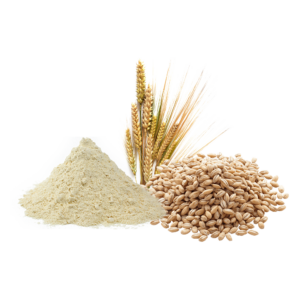 | BARLEY | 1. Barley (Hordeum vulgare) was first domesticated around 8,000 BCE. While high in carbohydrates, barley is low in gluten, so it’s used to make flatbreads and porridge. Commonly available pearled barley is missing its bran and not technically a whole grain. Look for “whole barley” or “hulled barley” for the most nutrition. Whole barley’s nutty flavor makes a great addition to soups and stews. | 12.5 grams | Vitamin B6 Niacin Folate Thiamine Riboflavin | Iron Copper Magnesium Phosphorus Manganese Selenium Zinc Potassium Sodium | It may help lower the blood sugar and the risk of diabetes The whole grain has high fiber that helps in digestion It may improve symptoms of ulcerative colitis May aid in weight loss by making one full for long | Irritable bowel syndrome Gluten intolerance |
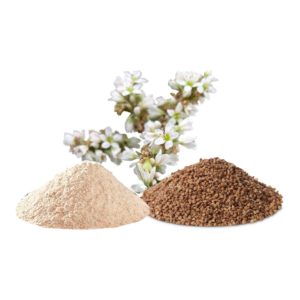 | BUCKWHEAT | 1. Buckwheat (Fagopyrum esculentum). A pseudo-cereal (not part of the Poaceae family), buckwheat is actually a fruit related to rhubarb and harvested for its tiny triangular seeds. Ground into flour, buckwheat is made into crêpes, soba noodles, and pierogi, while whole groats (called kasha in Russia) are eaten as a side dish. Buckwheat is unique for being the only grain with high levels of the antioxidant rutin. The nutty, bitter flavor of whole grain buckwheat flour is delicious in chocolate chip cookies and gluten-free pastries. | 5.68 grams | Folate Niacin Riboflavin Vitamin K Thiamin Vitamin B6 | Potassium Magnesium Iron Calcium Phosphorus | Its high fiber helps in digestion It has powerful antioxidants that helps fight oxidative stress May help lower the risk of type 2 diabetes May help manage weight thanks to its slow digestion and absorption | buckwheat allergy |
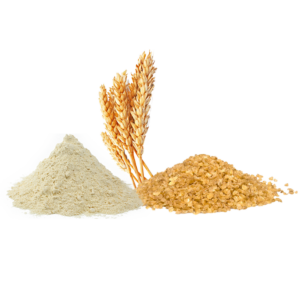 | BULGUR | 1. Bulgur (Triticum) consists of the precooked, dried, and ground kernels (groats) of durum or other types of wheat. Quick-cooking, fiber-rich (18 grams of fiber per cup) bulgur is the main ingredient in tabbouleh salad and kibbeh meat patties. | 6 grams | Vitamin B6 Niacin Folate | Iron Magnesium Manganese | The high soluble fiber helps lower cholesterol levels It helps improve insulin sensitivity Keeps you full for long thereby promoting weight loss Supports digestion and reduces constipation | Irritable bowel syndrome Gluten intolerance |
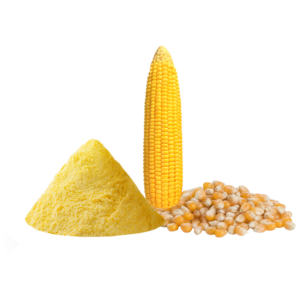 | CORN | 1. Corn (Zea mays) has an especially high content of oily germ, which makes whole-grain corn prone to rancidity, so why most cornmeal on the market is degermed. Make sure your cornmeal is labeled “whole corn” or “whole grain” (stone ground cornmeal is often whole grain, but not always) to get the most nutrients, and store that highly perishable cornmeal in the fridge or freezer. You can use antioxidant-packed whole grain cornmeal for grits, polenta, cornmeal pancakes, or cornbread. Try substituting whole grain cornmeal for the refined version in Chef Thomas Keller’s Creamy Polenta with Mushroom Conserva. | 3 grams | Vitamin C Vitamin K Vitamin E Vitamin B | Zinc manganese Magnesium copper Iron | Helps fight oxidative stress with the high antioxidant content Mya hwelp promote eye heakth thanks zeaxanthin antioxidant Supports the immune system Has copper that helps in the heart function | Diabetes and high blood sugar Irritable bowel syndrome |
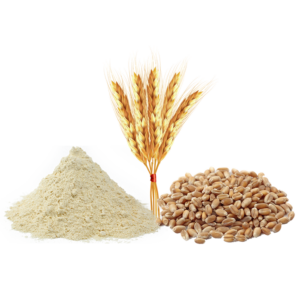 | EINKORN | 1. Einkorn (Triticum monococcum) is German for “one kernel.” In Italy, its known as farro piccolo (small farro). Likely the first type of wheat to be cultivated by humans, einkorn is higher in nutrients than modern wheat. “Pearled” means it’s not whole grain. Use whole einkorn in faro recipes, or try whole grain einkorn flour in bread. | 13.3 grams | Vitamin E Vitamin A Vitamin B3 Vitamin B6 | Niacin Iron Manganese zinc | Helps reduce the risk of eye disease May help lower allergies for whet sensitive individuals May help you manage weight Can delay the onset of type 2 diabetes Rich in phenolic acids that deal with oxidative stress | Celiac disease |
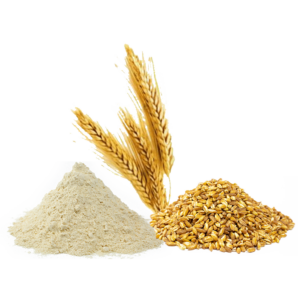 | FARRO | 1. Faro (Tritium turgidum dicoccum), aka faro medio or emmer, the nutty, hearty grain that’s packed with protein and fiber—first became popular in the United States via Italy, where it’s the star of Tuscan classics like farrotto and zuppa di faro. These days, farro is prized for the fact that it retains its al dente texture long after cooking, making it the perfect base for all kinds of grain bowls. Whole-grain farro, aka whole berry farro, pops a little when chewed, like wild rice or wheat berries. This high-protein farro requires overnight soaking before cooking. Semi-pearled farro (semi perlato) splits the difference: it cooks faster than whole-grain farro but contains more nutrients than pearled farro. It’s also packed with more protein and dietary fiber than brown rice, pasta, and couscous; a good source of magnesium (which supports bone health and the immune system); zinc (also good for the immune system); and vitamin B3 (which helps convert food into energy). When combined with legumes, farro forms a complete protein, making it a great option for vegans and vegetarians. Farro contains less gluten than other types of wheat so may be suitable for gluten sensitivity, but is not safe for those with celiac disease. Because it won’t ever get mushy, you can make a farro salad (such as Wolfgang Puck’s Roasted Carrots with Farro Salad) ahead of time and allow it to absorb the flavors of your vinaigrette. | 6 grams | Vitamin B3 Vitamin B6 Folate | Iron Zinc Magnesium | High fiber content helps in digestion May slow the absorption of sugar in the bloodstream thereby healing manage sugar levels Keeps you full for longer thereby helping cut foot portions Contain antioxidants that help deal with oxidative stress | constant bloating and gas |
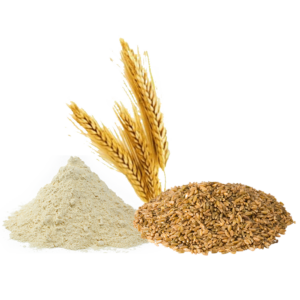 | FREEKEH | 1. Freekeh (Triticum turgidum var. durum) is simply hard durum wheat harvested when immature and green, then roasted for flavor and often sold cracked for a quicker cooking time. Freekeh is popular in the Middle East for grain salads, porridge, and pilaf. | 5 grams | Vitamin BI Vitamin B3 Vitamin B6 | Magnesium Calcium Phosphorus Zinc iron | Helps in managing weight but keeping you full for longer Its healthy fiber helps in digestion Its B complex vitamins and minerals help in nerve function and support immunity | Celiac disease / sensitivity to gluten |
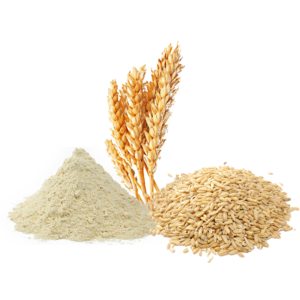 | KHORASAN (Kamut) | 1. Khorasan (triticum turgidum turanicum), commonly known by the trademarked name Kamut, is an ancient variety of wheat with a nutty, rich flavor and more protein and vitamin E than common wheat. Its high protein content makes kamut flour useful in bread- and pasta-making. Larger than wheat berries, khorasan can be puffed to make breakfast cereal. | 5.71 grams | Vitamin B1 Vitamin B3 | Magnesium Copper Selenium Phosphorus Zinc Molybdenum Manganese | It contains polyphenols that fight inflammation throughout the body It helps maintain tissue strength thanks to the soluble fiber The selenium content helps support hormonal balance. | Celiac disease |
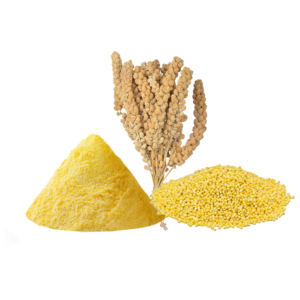 | MILLET | 1. Millet is a name used for several related grains cultivated by ancient Egyptians, Greeks, and Romans that’s currently a staple grain in India, where it’s ground into flour to make roti. Millet can be yellow, white, red, or gray and is especially delicious if toasted before cooking. Try tiny millet grains in a porridge or fritters. | 6 grams | Vitamin A Vitamin B complex Niacin | Phosphorus Potassium Iron Calcium | Helps in controlling the blood sugar Fiber content helps in digestion Helps reduce bad cholesterol in the body May reduce the risk of colon cancer | Kidney stones (its high in oxalates) Consume in low quantities if having stomach disorders If you have a thyroid problem |
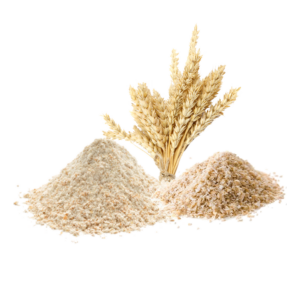 | OATS | 1. Oats (Avena sativa) are one of the few common grains almost always sold whole. Old-fashioned, or rolled oats are steamed and flattened, whereas steel-cut oats consist of the entire grain kernel, cracked for faster cooking. They’re the best whole grain for lowering blood cholesterol levels, and a good source of protein, calcium, iron, vitamin B1, and niacin. Use oats in scotch eggs, granola, and—of course—oatmeal. | 16.9 grams | Vitamin B1 Vitamin B2 Vitamin B3 Vitamin B6 Vitamin B9 | Manganese Copper Phosphorus Zinc Magnesium Iron | Helps in the enhancing metabolism due to manganese content Its selenium content helps enhance immunity and mental function It helps control sugar in type 2 diabetes | bloating and gas Celiac disease(as it might be contaminated by rye and wheat) |
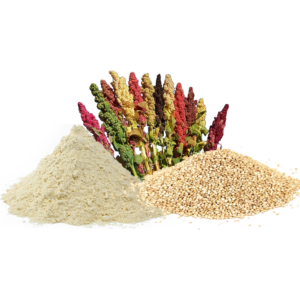 | QUINOA | 1. Quinoa (Chenopodium quinoa) is an ancient grain in the amaranth family (not a true cereal). Pronounced keen-wah, it has roots in the Peruvian Andes going back over 5,000 years, and hundreds of different cultivated varieties to its name. Quinoa is a complete protein, high in fiber (12 grams of fiber per cup) and minerals like iron and magnesium. Try nutty-flavored quinoa in stuffed bell peppers, quinoa grain bowls, quinoa breakfast porridge. | 4.4 grams | Folate Vitamin E Vitamin B complex | Manganese Copper Phosphorus Zinc Magnesium Iron | Contains polyphenol that helps fight against inflammation and some forms of cancer May help prevent stroke and heart disease Helps in enhancing bone health Helps in cell repair and body building | Coeliac disease |
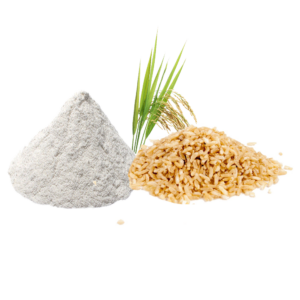 | BROWN RICE | 1. Brown Rice (Oryza sativa) gets its color from the bran coating surrounding the kernels. After rice is harvested, the bran and germ layers are either left intact or removed, yielding brown or white rice, respectively. Pretty much every variety of rice can be available as brown rice, including basmati, jasmine, short-, medium-, and long-grain. The bran coating gives brown rice a nuttier taste and chewy texture. Brown rice has three times the fiber of white rice, and is rich in protein, potassium, B vitamins, magnesium, zinc, iron, selenium, and manganese, which are all important for bone growth and energy. Try brown rice with a vegetable stir-fry, in kimchi fried rice, and in grain bowls. | 3 grams | Thiamin Vitamin B6 Niacin | Iron Magnesium Manganese Phosphorus Zinc | Has low glycemic index that helps lower blood sugar in the blood. Magnesium in the rice helps lower the chances of stroke and hear disease Helps in weight control | irritable bowel syndrome |
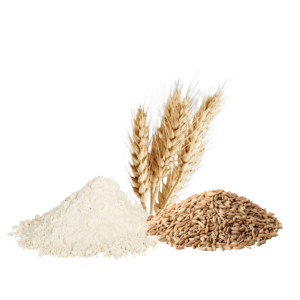 | RYE | 1. Rye (Secale cereale) is peculiar in that both the endosperm and bran are high in fiber, giving it a lower glycemic index than wheat. Cultivated for 2,000 years, rye is popular in bread-making because of its high gluten content. Look for “whole rye” or “rye berries” to make sure you’re getting protein, potassium, and B vitamins, in addition to the carbohydrates and fiber. Try whole rye flour in bread or chocolate rye cookies. | 12 grams | Folate Vitan B6 Vitamin B5 Thiamin Riboflavin Vitamin K | Calcium Iron Copper Magnesium Phosphorus Manganese Selenium Zinc Potassium Sodium | It is high in fiber contentthat helps in digestion Reduces the risk of gallstones It low glycemic index helps fight type 2 diabetes Its antioxidants helps fight oxidative stress | Coeliac disease |
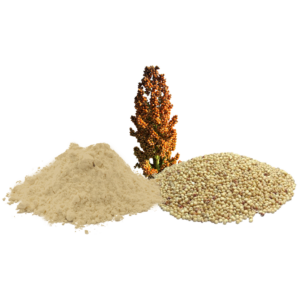 | SORGHUM | 1. Sorghum (Sorghum bicolor), aka milo, is smaller than corn but similar in looks, and even can be popped like corn, to make Indian jowar dhani. Although it’s a true grain in the Poaceae family, sorghum, which probably originated in Africa, is gluten free. It’s often ground into meal for porridge or baked goods. | 10 grams | Vitamin B1 Vitamin B2 Vitamin B5 Vitamin B6 | Copper Potassium Iron Zinc Phosphorus Magnesium | Has antioxidants that help fight oxidative stress B vitamins helps in metabolism and neural development It an alternative to wheat for people with celiac disease | irritable bowel syndrome |
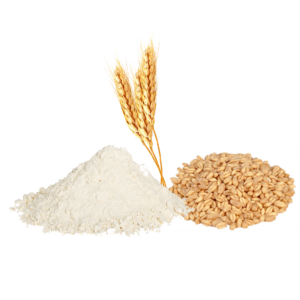 | SPELT | 1. Spelt (Triticum aestivum spelta), aka farro grande, has been grown in what is now southern Germany since 4,000 BCE. Copper-color spelt was the most popular type of wheat until industrialization. Look for “whole spelt” to make sure you’re getting the whole grain, and use anywhere you would farro, such as in grain salads or stirred into a soup. High-protein spelt flour can also be made into pizza dough or bread. | 10.67 grams | Vitamin B6 Riboflavin Niacin Folate Vitamin A Vitamin E Thiamin | Zinc Phosphorus Magnesium Potassium Sodium Calcium Iron | It helps lower cholesterol in the blood thanks to soluble fiber Helps reduce the blood pressure It lowers the risk of heart disease | irritable bowel syndrome |
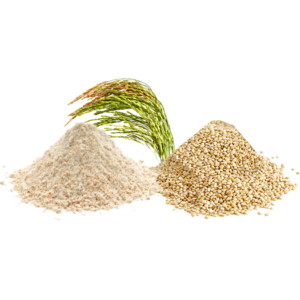 | TEFF | TEFF (Eragrostis tef) is a type of millet that’s a staple grain in its native Ethiopia and Eritrea, where it was probably domesticated 6,000 years ago. Today, teff is fermented and cooked into injera, a spongy, crêpe-like bread. Gluten-free teff grains are very small, molasses-like in flavor, and high in iron and calcium. They’re almost always whole grain, since teff is too small to be easily milled. | 7 grams | Vitamin B6 Vitamin | Iron Calcium Copper Phosphorus zinc Selenium Manganese Potassium | It has essential amino acids that helps in building cells Helps fight against inflammation May enhance the immune function May increase metabolism | mineral differnciecies (phytate in teff inhibits mineral absorption) Bloating and gas |
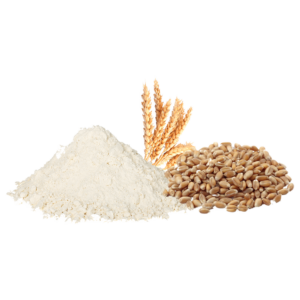 | WHEAT | WHEAT (Triticum) comes in thousands of varieties, the most common of which are durum wheat (Triticum durum), usually ground into semolina for pasta and couscous; common wheat (Triticum aestivum), which accounts for 80 percent of worldwide production and is used to make bread; and club wheat (Triticum compactum), which is used in pastry. Different types of wheat can be classified as “hard” (more protein) or soft, red (more tannins) or white, winter (sown in fall) or spring (sown in spring), but to get the most nutrition, look for “whole wheat.” Whole kernels of wheat (aka wheat berries) have a crunchy brown outer husk that pops when chewed, giving way to a chewy center, and are also sold as cracked wheat or wheat flakes. High in gluten, wheat flour is considered the very best flour for baking bread. Most commercial whole-wheat flours are made by adding the germ and bran back into the refined white flour. Wheat germ is high in folic acid, an important prenatal vitamin. Use whole wheat flour to make sourdough bread, or try the whole kernels in a wheat berry salad. | 13.2 grams | Folate Vitan B6 | Iron Calcium Copper Phosphorus Manganese Selenium | Helps enhnace infant growth in expectant mothers Helps in enhancing the body’s immunity May help improve skin and hair condition Whole grain has fiber that helps in digestion | Gluten allergy Wheat allergy Celiac disease |
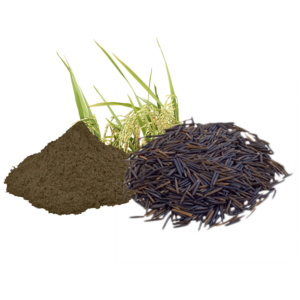 | WILD RICE | WILD RICE (Zizania) is the seed of a marsh grass native to North America, long cultivated by Native Americans. Wild rice contains more protein and fiber, but less iron and calcium, than brown rice, to which it is not related. The genus Zizania includes four different species, three of which are native to North America. The third (Zizania latifolia) is native to Asia and cultivated as a vegetable, not a grain. Try it in a wild rice salad with green onions, cranberries, and pecans. | 4 grams | Vitamin B6 Vitamin B5 Vitamin B9 | Copper Manganese Zinc Phosphorus Magnesium | Its high fiber helps in digestion It has powerful antioxidants that helps fight oxidative stress May help lower the risk of type 2 diabetes It has essential amino acids that help in building cells | intestinal disorders that slow the digestion |
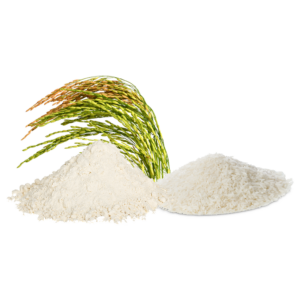 | WHITE RICE | White rice thought to have been first cativated in the Yangtze river in China around 13,500 years ago. There were other strains of white rice that were independently grown in other parts of the world such as the Oryza glaberrina, which was grown in Africa about 3,500 years ago. Over centuries, white rice has become a staple food for households around the globe and helped enhance food security. In the recent past, the development of new technologies have enabled scientists to add new nutrients such as beta carotene into the rice for better nutrition. White rice has high amounts of potassium and phosphorus. It also contains the vitamin B complex. | 3.54g | Vitamin B6 Thiamine Niacin Vitamin B5 Vitamin B9 | Calcium Iron Magnesium Phosphorus Manganese Selenium Zinc Potassium Sodium | Helps enhance nerve function Zimc is vital for cognition and concentration Improves the production of red blood cells It is a high energy food for physically active people | Diabetes and high blood sugar |
Legumes
| PICTURES | Beans | COMPOSITION PER 100G | Vitamins | Minerals | Benefits | AVOID IF YOU HAVE |
|---|---|---|---|---|---|---|
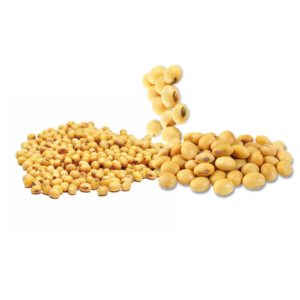 | SOYBEANS (EDAMAME ARE BOILED SOYBEANS) | Protein: 16.6 grams. Carbs: 9.9 grams. Fiber 9 grams | Vitamin B9 Vitamin B2 Vitamin K | Iron Manganese Phosphorus | Helps reduce the risk of cancer Helps strengthen bones and teeth Have strong antioxidants that prevent inflammation | allergic reaction to soy |
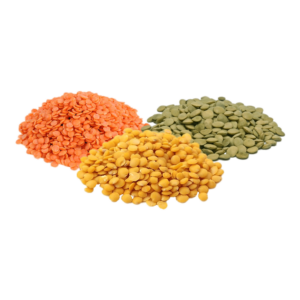 | LENTILS | Carbs: 39.9 grams. Protein: 17.9 grams. Fat: 0.8 grams. Fiber: 15.6 grams. | Vitamin B9 Vitamin B1 | Copper Manganese | Has high fiber content that helps in digestion Helps reduce the blood sugar Improves the bowel function | Bloating and indigestion |
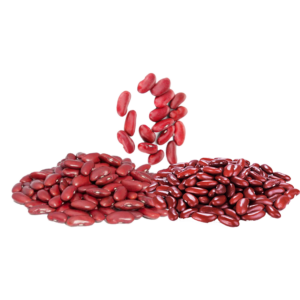 | KIDNEY BEANS | Protein: 8.7 grams. Carbs: 22.8 grams. Fiber: 6.4 grams. Fat: 0.5 grams. | Vitamin B9 Vitamin B1 | Iron Copper Manganese | It helps in reducing blood sugar by slowing its absorption Helps improve good blood cholesterol levels It has high fiber that helps in digestion | Eat in small quantities in you have a problem with bloating and flatulence |
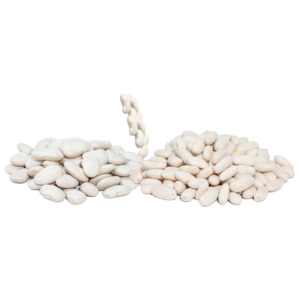 | LARGE WHITE BEANS | Protein: 17 grams. Fat: 0.6 grams. Carbs: 44 grams. Fiber: 11 grams. | Vitamin B9 Vitamin B1 Vitamin B6 Vitamin B3 | Copper Manganese Magnesium Zinc Iron | Aid in conversion of glucose in the body Helps lower blood sugar Key in combating oxidative stress | Eat in small quantities if you have bloating and flatulence |
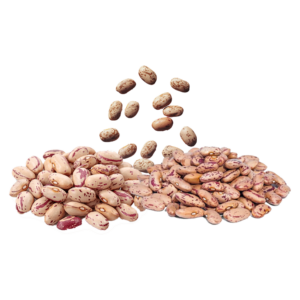 | CRANBERRY (BORLOTTI) BEANS | Protein: 17 grams. Fat: 0.6 grams. Carbs: 43 grams. Fiber: 15 grams. | Vitamin B9 Vitamin B6 | Iron Calcium Potassium | Helps in the nerve function Slows the absorption of sugar into the blood stream Enhances the formation of red blood cells | Intestinal problems |
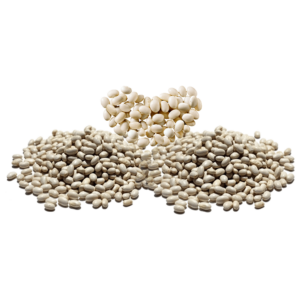 | NAVY (HARICOT) BEANS | Protein: 15.0 grams. Fiber: 19.1 grams. Carbs 44 grams | Vitamin B1 Vitamin B9 | Iron Magnesium Manganese | Helps reduce metabolic syndrome due to fiber Lowers the bad cholesterol levels in blood Helps enh ace the formation of red blood cells | Eat in low quantities if having bloating and flatulence |
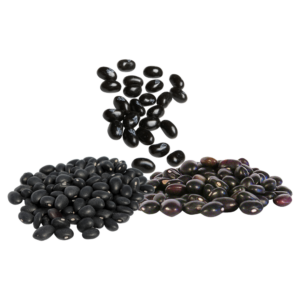 | BLACK BEANS | Carbs: 39.9 grams. Protein: 24.9 grams. Fat: 0.8 grams. Fiber: 12.6 grams. | Vitamin B1 Vitamin B9 | Iron Magnesium Manganese | Lowers blood glycemic index They help reduce the weight gain Helps the nervous system and motor action through Vitamin B1 | Intestinal problems |
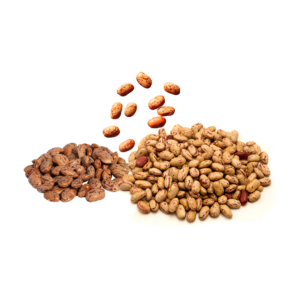 | PINTO BEANS | Carbs: 45 grams. Fiber: 15 grams. Protein: 15 grams. Fat: 1 gram. | Vitamin B1 Vitamin B9 | copper Manganese | Lowers blood glycemic index They help reduce the blood cholesterol Helps the nervous system and motor action through Vitamin B1 Helps assist digestion through its short chain fatty acid | Intestinal problems |
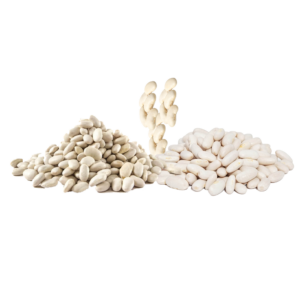 | LIMA (BUTTER) BEANS | Protein: 12 grams. Fat: 1 gram. Carbohydrates: 40 grams. Fiber: 9 grams. | Vitamin B1 Vitamin B9 Folate | Phosphorus Copper Manganese Molybdenum | Helps in muscle contraction Lowers the rate of glucose absorption in the blood Helps the skin and hair health | Indigestion and bloating |
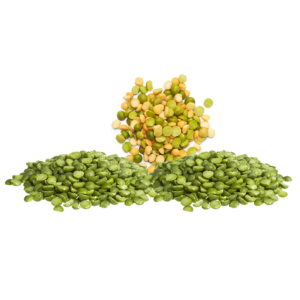 | SPLIT PEAS | Protein: 8 grams. Fat: 1 gram. Carbohydrates: 40 grams. Fiber: 8grams. | Vitamin B9 Vitamin K Vitamin B1 | Manganese Copper | it helps in reducing blood sugar Helps improve good blood cholesterol levels It has high fiber that helps in digestion | indigestion |
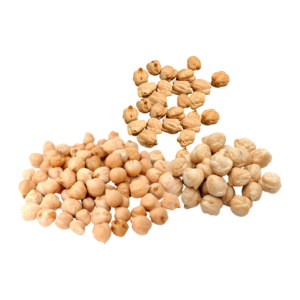 | CHICKPEAS (GARBANZO BEANS) | Protein: 14.4 grams Carbs: 2 grams Fiber: 12.5 gram Fat: 4 grams | Vitamin B9 | Iron Copper Manganese | It helps in reducing blood sugar Helps improve good blood cholesterol levels It has high fiber that helps in digestion | Eat in small quantities in you have a problem with bloating |
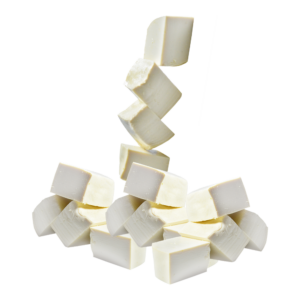 | FIRM TOFU | Protein: 8 grams Carbs: 2 grams Fiber: 1 gram Fat: 4 grams | Folate Vitamin B9 Vitamin B3 Vitamin B6 | calcium magnesium iron phosphorus potassium zinc Selenium | Helps in conversion of glucose Provides essential amino acids to build muscle Helps the skin and nail growth Helps in the blood formation | Soy allergy |
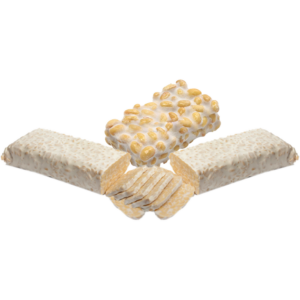 | TEMPEH | Protein: 40 grams Fat: 3.5 grams Carbs: 3 grams Fiber: 3 grams | Vitamin B3 Vitamin B2 Vitamin B6 | calcium magnesium iron phosphorus potassium Sodium Manganese | Helps in muscle contraction and formation Lowers the rate of glucose absorption in the blood Helps in the formation of blood | Soy allergy |
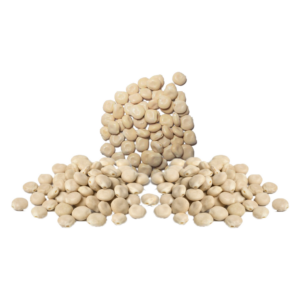 | LUPIN BEANS | Protein: 29 grams Fat: 1.4 grams Carbs: 0.7 grams Fiber: 1 grams | Vitamin B1 Vitamin B2 Vitamin B3 Vitamin C | Calcium Iron Phosphorus Magnesium Zinc | Helps in brain and muscle function Enhances the functioning of the nervous system Enhances the formation of red blood cells | Lupin allergy |
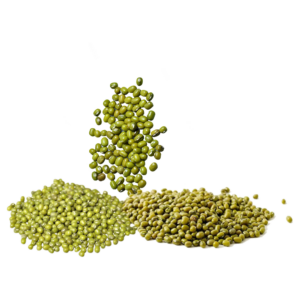 | MUNG BEANS | Protein: 49 grams Fat: 2.4 grams Carbs: grams Fiber: 1 grams | Vitamin B3 Vitamin B2 Vitamin B6 Vitamin B5 | magnesium iron phosphorus potassium zinc Selenium Copper Manganese | Rich in essential amino acids for muscle growth It has antioxidants to help reduce inflammation Helps in the red blood cells formation Helps in development of healthy hair and skin | Eat in low amounts if you have flatulence and gas issues |
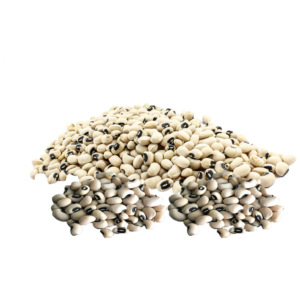 | BLACK EYED BEANS | Calories: 124 Protein: 13 grams Fat: 0.9 grams Carbs: 35 grams Fiber: 11 grams | Folate Thia mine Vitamin B6 Vitamin B2 | magnesium iron phosphorus potassium zinc Selenium Copper Manganese | It has antioxidants to help reduce inflammation Rich in essential amino acids for muscle growth Helps in the red blood cells formation Helps enhance the general health of the body | Eat low amounts if you have gastric problems, heartburn and flatulence |
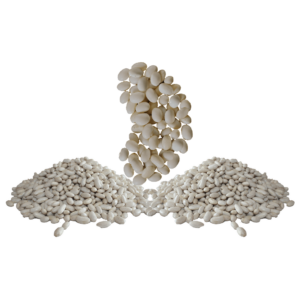 | CANNELLINI BEANS | Calories: 114 Protein: 8 grams Fat: 0.5 grams Carbs: 19 grams Fiber: 5 grams | Vitamin B1 Vitamin B3 Vitamin B6 | iron phosphorus potassium zinc Copper Manganese | Lowers the glycemic index in the blood Enhances the production of red blood cells Key in providing essential amino acids for muscle growth and repair Good for weight management | Eat low amounts if you have gastric problems, heartburn and flatulence |
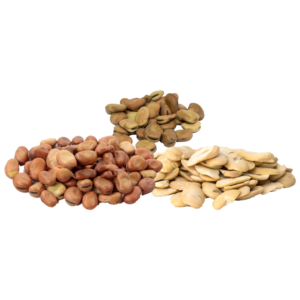 | FAVA BEANS | Calories: 137 calories Carbs: 33 grams Fat: Less than 1 gram Protein: 13 grams Fiber: 9 grams | Folate Vitamin B9 Vitamin B3 Vitamin B1 | Manganese Iron Magnesium Zinc Phosphorus | Its high fiber helps in digestion It helps in building blood It helps in muscle formation Zinc and zinc helps in skin , nail and hair health | bloating and intestinal problems |
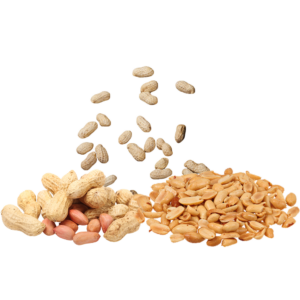 | PEANUTS | Calories: 207 Protein: 9 grams Fat: 18 grams Carbohydrates: 6 grams Protein: 9 grams Fiber: 3 grams Sugar: 1 gram | Vitamin E Folate Vitamin B1 | Copper Magnesium Arginine | Helps in the relaxation of blood vessels and prevents hardening Helps lower blood sugar by slowing glucose absorption Good for enhancing weight loss | Intestinal problems and bloating |
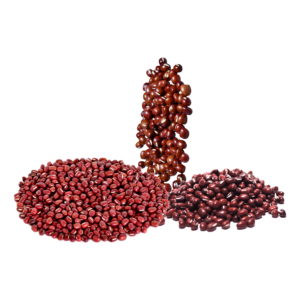 | ADZUKI BEANS | 128 calories 7.5 grams of protein 0 grams of fats 0 grams of cholesterol 25 grams of carbohydrates 7.3 grams of dietary fiber | Vitamin B1 Vitamin B6 Vitamin B3 | Magnesium Calcium Phosphorus Potassium | High in antioxidants that prevents inflammation and cell damage It is a high fiber food that helps in digestion Helps in the formation of the body Calcium helps strengthen bones and teeth | Indigestion and bloating |
Meat
| PICTURES | MEATS | Vitamins | Minerals | BENEFITS | AVOID IF YOU HAVE |
|---|---|---|---|---|---|
 | BEEF – MEAT OF OLDER CATTLE | Vitamin B12 Vitamin B6 Niacin Riboflavin Vitamin K | Omega 3 Omega 6 Iron Calcium Magnesium Phosphorus Potassium Selenium | Provides high amount of iron for blood building Helps in improving immune function and enhanced metabolism Selenium helps deal with oxidative stress | Been diagnosed with high cholesterol levels You have a heart disease You have circulatory system problems |
 | VEAL – MEAT OF CALVES OR YOUNGER CATTLE – MORE TENDER THAN BEEF | Vitamin B12 Vitamin B6 Niacin Riboflavin Vitamin K | Omega 3 Omega 6 Iron Calcium Magnesium Phosphorus Potassium Selenium | Veal has more B vitamins than beef. It is also tender, allowing for better extraction of gelatin. B vitamins help with immunity and nerve function while gelatin helps in bone health. It also has high amounts of selenium that helps in better immunity | Been diagnosed with high cholesterol levels You have a heart disease You have circulatory system problems |
 | GOAT | Vitamins B6, Vitamin B12, Vitamin C, Vitamin E, Vitamin A, Vitamin K, | Iron, Calcium, Phosphorus, Zinc, Copper, Manganese, Selenium, Potassium and Sodium | It has low amounts of saturated fats, making it ideal for keeping weight low. It also has a high amounts of B vitamins for immunity and nerve issues. The Vitamin E and K along with phosphorus and calcium can help with bone health | Autoimmune problems such as multiple sclerosis |
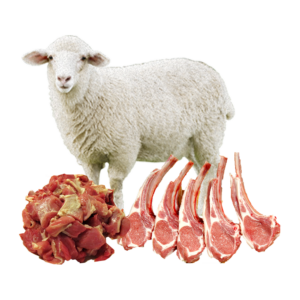 | LAMB -YOUNG SHEEP LESS THAN 1 YEAR OLD – Pink to pale red color – Tender with mild flavor | Vitamin B12 Vitamin B6 Selenium Pantothenic acid | Zinc Selenium Phosphorus Magnesium Iron Copper | It has higher concentrations of B vitamins than mutton that helps with nerves and metabolism. Selenium and zinc helps fight inflammation and helps in the growth of hair and nails | Autoimmune problems such as multiple sclerosis |
 | MUTTON – FULLY GROWN SHEEP, 1-3 YEARS OLD – Deep Red color – Lots of Fat | Vitamin B12 Vitamin B6 Selenium Pantothenic acid | Zinc Selenium Phosphorus Magnesium Iron Copper | Has high amounts of calcium and phosphorus than lamb meat. They help in strong bones and aiding muscle recovery. It also has omega 3 and 6 fatty acids that are good for cardiovascular health | Autoimmune and join problems such as multiple sclerosis and gout |
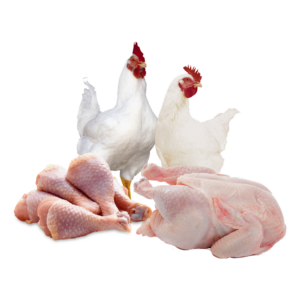 | CHICKEN | Thiamin Riboflavin Niacin Vitamin B6 Vitamin B12 Pantothenic acid Folate | zinc Selenium Phosphorus Magnesium Iron Copper Manganese Sodium | It has softer bones which makes it easy to extract gelatin and collagen that helps manage blood sugar, enhance sleep quality and radiant skin. It has high munts of B vitamins potassium and selenium for general health and enhanced immunity | Chicken allergy |
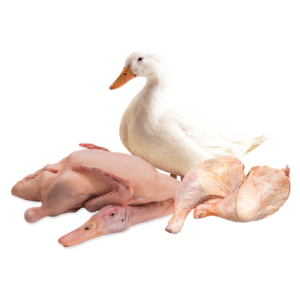 | DUCK | Thiamin Riboflavin Niacin Vitamin B6 Vitamin B12 Pantothenic acid Folate | zinc Selenium Phosphorus Magnesium Iron Copper Sodium | Its high protein content helps in body building It also has high amounts of selenium that helps in immune function and improving cognition. The phosphorus content helps in muscle recovery and keeping bones strong. | Chicken allergy |
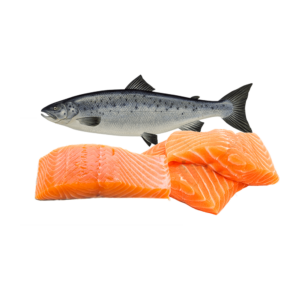 | SALMON | Vitamin B1 (thiamin) Vitamin B2 (riboflavin) Vitamin B3 (niacin) Vitamin B5 (pantothenic acid) Vitamin B6 Vitamin B9 (folic acid): Vitamin B12 | Omega-3 fatty acids Potassium Selenium Antioxidant astaxanthin | Omega 3 fatty acids helps in heart and circulatory system health. Its vitamin B complex helps everything from development of red blood cells to nerve function | Fish allergy |
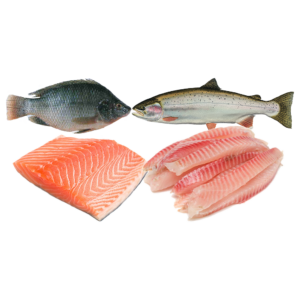 | FRESH WATER FISH ( Trout, Tilapia) | Vitamin B12 Niacin Vitamin D Vitamin C Vitamin B6 | Potassium Phosphorus Selenium Omega-3 fatty acids Magnesium | May help lower risk of heart disease May enhance the brain function Vitamin D helps to strengthen teeth and bones | Fish allergy |
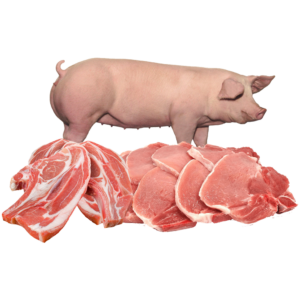 | PORK | Thiamin Riboflavin Niacin Vitamin B6 Vitamin B12 Pantothenic acid | Omega 3 Omega 6 Iron Calcium Magnesium Phosphorus Potassium Zinc Selenium | The high content of vitamin B complex help in glucose metabolism. -Zinc and selenium helps fight oxidative stress The high amount proteins helps in body building. | It may aggravate multiple sclerosis Not good for people with liver conditions Its high fat content is bad for people managing weight |
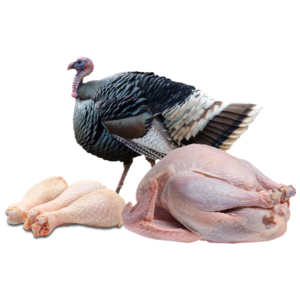 | TURKEY | Thiamin Riboflavin Niacin Vitamin B6 Vitamin B12 Pantothenic acid Folate | zinc Selenium Phosphorus Magnesium Iron Copper Sodium | This is a protein-dense food that helps in building muscle and repair cells. It has a high vitamin B complex that aid in various functions such as glucose metabolism and nerve health. Its high amounts of selenium that helps in immune function and phosphorus that helps in muscle and tendon health | Chicken allergy |
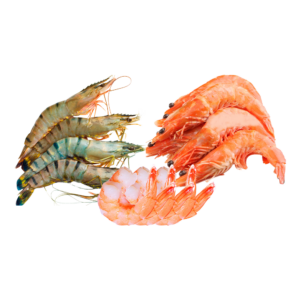 | SEAFOOD (Octopus, shrimp and prawns) | Vitamin B12 Folate | Iron Omega-3 Selenium Copper Vitamin B12 Sodium Amino acids Magnesium | Seafood is a great antioxidant that helps fight free radicals Selenium and magnesium helps improve cognition They are also high in omega three which helps prevent inflammation | allergic to seafood or shellfish |
 | TUNA | Vitamin B12 Vitamin B6 | Iron Omega-3 Selenium Potassium iodine | Helps in blood sugar control Counters muscle-related muscle loss Iron and vitamin B12 helps in building blood Iodine helps in the thyroid function | Consume in low quantities is pregnant or breastfeeding Fish allergy |
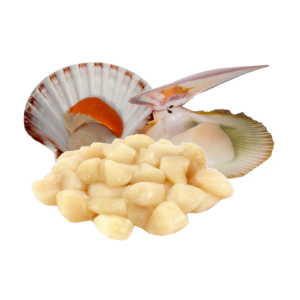 | SCALLOPS | Vitamin B12 Vitamin B6 | Potassium Phosphorus Selenium Omega-3 fatty acids Magnesium Iron Zinc | Omega 3 fatty acids helps in heart and circulatory system health. Its vitamin B complex helps everything from development of red blood cells to nerve function Zinc helps in balancing hormones Vitamin B12 works as antioxidant | Shellfish allergy |
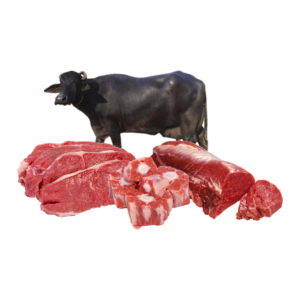 | BUFALLO/BISON | Thiamin Riboflavin Niacin Vitamin B6 Vitamin B12 Vitamin K Folate | Omega 3 Omega 6 Iron Magnesium Phosphorus Potassium Zinc Selenium | It has high amounts of omega-3 fatty acids It does not have high amounts of saturated fats, making it good for circulatory system health | Meat allergy |
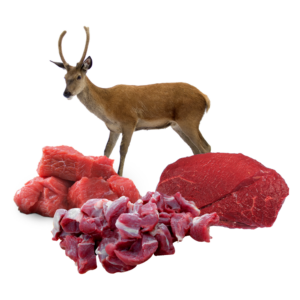 | VENISON | Vitamin B12 Vitamin B6 Niacin Riboflavin Pantothenic acid | Omega 3 Omega 6 Iron Magnesium Phosphorus Potassium Zinc Selenium | It has low amounts of saturated fats. Therefore, less likely to cause cholesterol-related problems It has a high amount of vitamins than beef and mutton that aids in nerves, metabolism and general health It has lots of minerals that helps in keeping the organs healthy. Selenium helps in metabolism while phosphorus helps in muscle contraction | Alpha-gal Syndrome (AGS) a condition that causes allergies to mammal meat. |
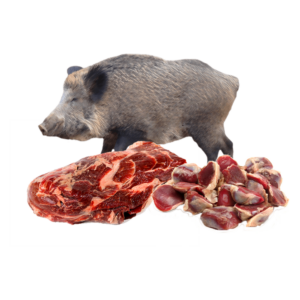 | WILD BOAR | Thiamin Riboflavin Niacin Vitamin B6 Vitamin B12 Vitamin K | Omega 3 Omega 6 Iron Calcium Magnesium Phosphorus Potassium Zinc Selenium | It has higher concentrations of B vitamins than mutton that helps with nerves and metabolism. Selenium and zinc helps fight inflammation and helps in the growth of hair and nails It has high amounts of omega 3 fatty acids that are good for the circulatory system. | Alpha-gal Syndrome (AGS) Meat allergy |
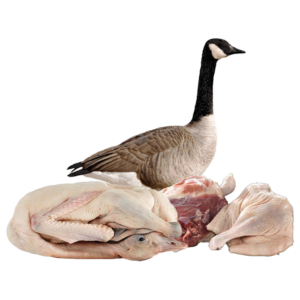 | GOOSE | Thiamin Riboflavin Niacin Vitamin B6 Vitamin B12 Pantothenic acid Folate | zinc Selenium Phosphorus Magnesium Iron Copper Manganese Sodium | This is a protein-dense food like turkey that helps in building muscle and repair cells. It has a high vitamin B complex that aid in various functions such as glucose metabolism and nerve health. Its high amounts of selenium that helps in immune function and phosphorus that helps in muscle and tendon health. | Chicken allergy |
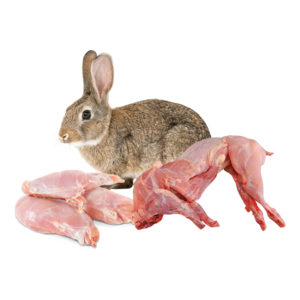 | RABBITS | Thiamin Riboflavin Niacin Vitamin B6 Vitamin B12 Pantothenic acid | Iron Magnesium Phosphorus Potassium Zinc Copper Selenium | Rabbit meat is low in fats and calories, making it a great choice for people who are managing weight. It is a good source of vitamin B12 that helps in red blood formation, nerve function and supports bone health. It is high in selenium, phosphorus and potassium, all vital for immune function, skin and muscle health | If you have been diagnosed with protein toxicity in the past |
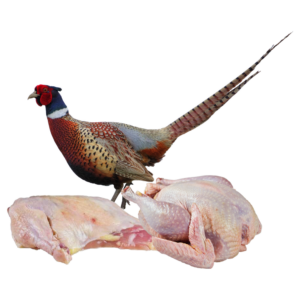 | PHEASANT | Thiamin Riboflavin Niacin Pantothenic acid Vitamin A Vitamin C | Iron Magnesium Phosphorus Potassium Zinc Selenium Sodium | The wild boar has high amount of Vitamin A which is good for eye health. Its high niacin content helps convert food to energy | Chicken allergy |
Nuts
| PICTURES | NUTS | Vitamins | Minerals | BENEFITS | AVOID IF YOU HAVE |
|---|---|---|---|---|---|
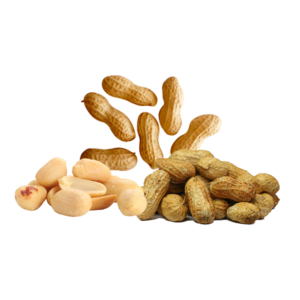 | PEANUTS | Vitamin E Folate | arginine Copper Magnesium | May lower the risk of stomach cancer May help lower cholesterol levels in the blood May enhnace the body’s immunity May help reduce inflammation | Peanut allergy |
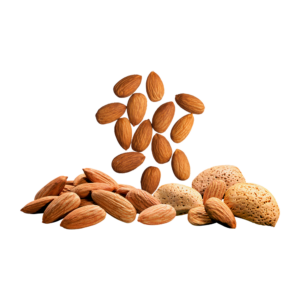 | ALMONDS | Vitamin E Vitamin K | Magnesium Zinc Copper | Helps reduce inflammation Helps reduce sugar levels in people with type 2 diabetes It improves the good cholesterol levels Vitamin E helps support immunity | Nut allergy On laxatives Vitamin E supplement |
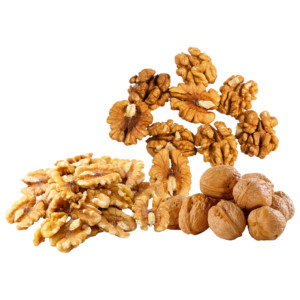 | WALNUTS | Vitamin E Vitamin K | Magnesium Omega 3 fatty acids | Omega-3 fatty acids helps prevent inflammation It lowers the risk of heart disease Helps in enhanced cognition Improves the levels of good cholesterol | Nut allergy |
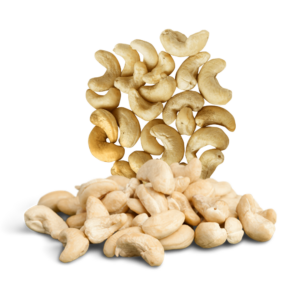 | CASHEWS | Vitamin E Vitamin K | Magnesium Zinc | May help improve symptoms of metabolic syndrome High in antioxidants that help counter inflammation Hogh in good cholesterol | Nut allergy May increase blood sugar in people with diabetes |
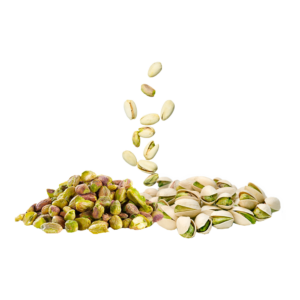 | PISTACHIOS | Vitamin E Vitamin K | Magnesium Zinc Copper Selenium | Are high in good cholesterol The high fiber helps in digestion Mya counter oxidative stress | You are on laxatives Have problems swallowing |
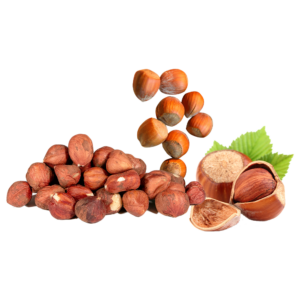 | HAZELNUTS | Vitamin E Thiamin Vitamin B6 Folate | Manganese Magnesium Zinc Copper phosphorus Potassium | High fiber helps in digestion They have omega 3 that prevents inflammation May help enhance the body immunity | Iron deficiency (it may impair its absorption) |
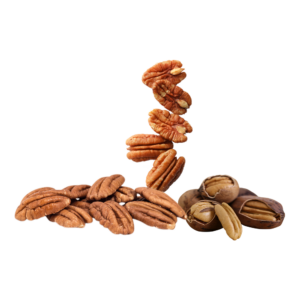 | PECANS | Vitamin E Vitamin K | Magnesium Copper | Are high antioxidants, which helps prevent inflammation Can lower the levels of bad cholesterol in the body Helps enhance cognition and concentration high in good fat for the heart and blood circulation | Nut allergy |
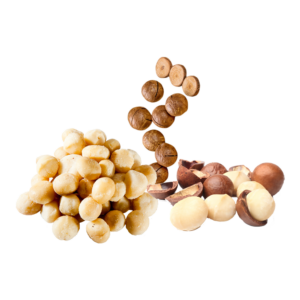 | MACADAMIANS | Thiamine Vitamin B6 Vitamin E | Copper Iron Manganese Magnesium | Lowers oxidative damage and fights inflammation High in monosaturated fats that help lower cholesterol May reduce metabolic syndrome May help people with Type 2 diabetes | Nut allergy |
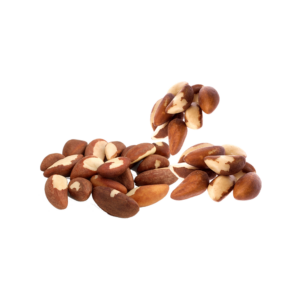 | BRAZIL | Vitamin E Vitamin K Thiamine | Selenium Zinc Phosphorus Copper Manganese Magnesium | Helps in the functioning of the thyroid gland May help lower inflammation It helps lower cholesterol levels and is good for the heart | Nut allergy |
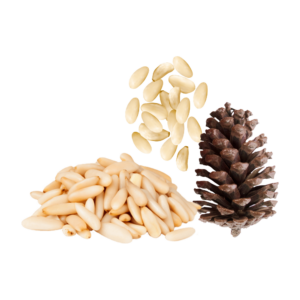 | PINE | Vitamin E Vitamin K | Iron Phosphorus Magnesium Manganese Calcium | It helps in the management of blood sugar It helps in maintaining a well-functioning circulatory system Helps increase energy levels in the body | Allergic to pine pollen or nuts |
 | COCONUT | Vitamin K Vitamin E | Copper Iron Manganese Magnesium Phosphorus Potassium | Helps in building red blood cells May help enhance the growth of nails and hair May help manage weight, especially reduction of belly fat May help lower blood sugar levels | Coconut allergy |
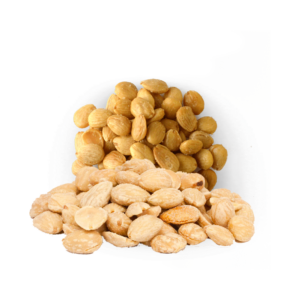 | MARCONA ALMONDS | Vitamin B6 Vitamin E | Iron Phosphorus Magnesium Manganese Calcium | Helps eliminate free radicals in the body Helps keep bones healthy and strong Lowers glucose absorption into the bloodstream | Nut allergy |
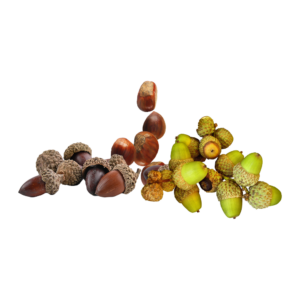 | ACORNS | Vitamin A Vitamin E Vitamin B6 Folate | Manganese Iron Potassium | May help improve gut health Rich in antioxidants that prevent inflammation Helps in maintaining healthy nervous system | Tree nut allergy |
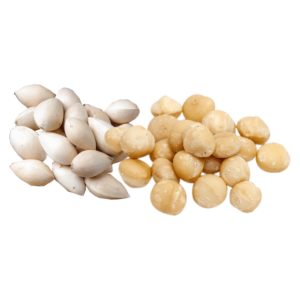 | GINKO NUTS | Vitamin C Vitamin E Vitamin B6 Vitamin A Niacin Thiamin | Iron Phosphorus Magnesium Manganese Calcium Copper Potassium | Lowers the cholesterol profile May help fight certain cancers such as prostrate and breast cancer May enhance the brain function | Contact dermatitis |
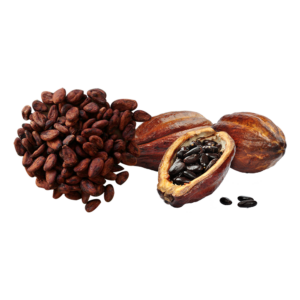 | CACAO | Vitamin B6 Vitamin K | Calcium zinc | Contains polyphenols that reduce inflammation and improve good cholesterol May enhance brain function by improving blood flow to the brain May improve mood and lower symptoms of stress May help manage weight | sensitivity to tyramine |
 | KOLA NUTS | Vitamin E | Theobromine Magnesium Potassium Calcium | May lower migraine headaches May lower the symptoms of asthma May speed up metabolism in people with Graves’ diseases and low testosterone | High blood pressure Sleep disorders Nausea |
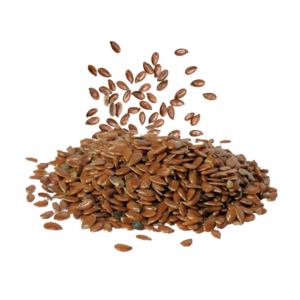 | FLAXSEEDS | Vitamin B1 Vitamin B6 Folate | Omega-3 fatty acids Calcium Iron Potassium Magnesium Zinc phosphorus | Helps in the nerve functions Helps regulate fluid balance May slow the onset of osteoporosis Helps enhance the body immunity May support kidney function | Hypersensitivity to flaxseed |
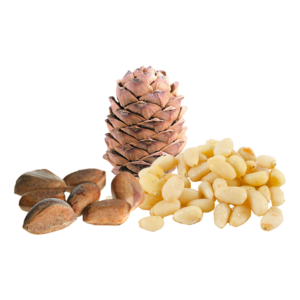 | CEDAR NUTS | Vitamin A Niacin Riboflavin Folate Thiamin Vitamin B5 | Calcium Iron Potassium Magnesium Selenium Zinc Molybdenum | Helps in red blood formation Enhances the functioning of the nervous and thyroid systems It is good for the skin and hair Ennaces the conversion of glucose to energy | Pine or peanut allergy |
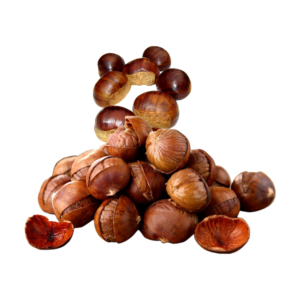 | CHEST NUTS | Vitamin C Vitamin E Vitamin B complex Vitamin A | Selenium Copper Zinc Magnesium Manganese Calcium | Helps improve digestion Helps control blood sugar Contains monosaturated fats that are good for the heart Are rich in ellagic and Gallic acid that prevent inflammation | Problems swallowing Nut allergy |
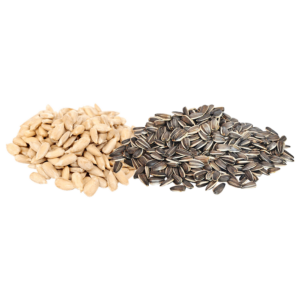 | SUNFLOWER SEEDS | Vitamin B6 Vitamin E Vitamin B3 Vitamin B5 Vitamin B2 | Selenium Zinc Iron Manganese Magnesium | Helps fight oxidative stress Prevents anemia Supports the immune system May help reduce bad cholesterol Helps in the contraction of muscle | Sunflower seed allergy Peanut butter allergy |
Chinese Medicines
| Name | Image | Description | Benefits |
|---|---|---|---|
| Bai Mao Gen |  | It has antibacterial properties and it can combat both staphylococcus aureus and bacillus dysenteriae. | Primarily used for haematuria. It also can clear heat, promote urination, generate fluid, vomiting, febrile diseases, edema, bleeding ans dysuria |
| Bai He |  | Its tonic properties make it a good herb for promoting restful sleep and treating restlessness and irritability. | It is used to relieve coughs, dry throats and other respiratory conditions, to clear away heat, and to treat insomnia and heart palpitations |
| Bai Ji | 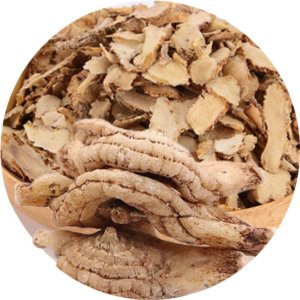 | A Chinese orchid, Bletilla striata, the pseudobulbs of which are used in traditional Chinese medicine, but which is also widely grown for its ornamental flowers and foliage | Its mains functions are to reduce swelling and stop bleeding in the lungs and stomach. It is often used with gelatin, donkey glue and cuttlefish bone as part of a larger herbal formula |
| Bai Ji Li | 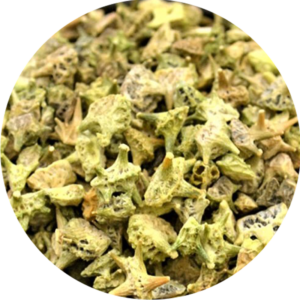 | Bai Ji Li is a traditional Chinese medicinal herb | Used to dispel wind, soothe the liver and benefit vision. Bai Ji Li supports cardiovascular health, benefits skin health, supports kidney health, benefits male health, and may benefit reproductive function. |
| Bai Qian | 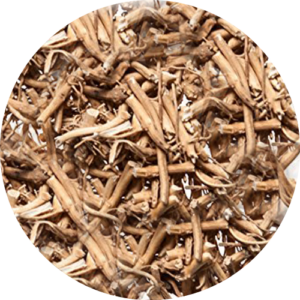 | It promotes the lungs’ dispersing functions by redirecting lung qi down, expelling phlegm and treating coughs and a congested chest. It is often used with other herbs, such as ephedra, rehmannia and platycodon. | In addition to treating coughs, cynanchum is sometimes used to treat internal fevers and bronchitis. |
| Bai Wei | 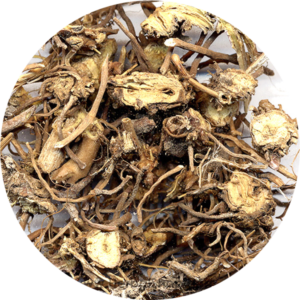 | Scientific name is Cynanchum atratum. Dried root and rhizome are used. | Cools the Blood and expels Deficient Heat |
| Bai Zhu | 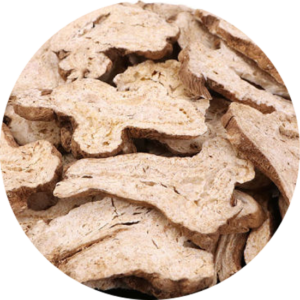 | Bai Zhu is the strongest of the products to tonify the Spleen-Qi. When Bai Zhu is dry-fried, its action in drying Dampness is increased | It treats reduced appetite, indigestion, tiredness and a wan complexion. Effective for treating distension in the abdomen, loose stools and diarrhea. |
| Ban Xia |  | Ban Xia is a king ingredient in Er Chen Tang. Like the name indicates, it means it has more power than other ingredients in the formula. | Ban Xia is pivotal in reducing distension and stuffiness in the chest or abdomen. It can reduce brain fog caused by Lyme Disease, ease fluid retention, and dispel the feeling of a lump in the throat associated with emotional distress |
| Bai Shao |  | The root of white peony, or bai shao, is a traditional Chinese remedy | improve blood flow, pain, hyperpigmentation, and mood disorders. It might also help autoimmune conditions and increase estrogen levels |
| Bie Jia |  | Bie Jia is a king ingredient in Qing Hao Bie Jia Tang. Like the name indicates, it means it has more power than other ingredients in the formula. | For long standing febrile disorders where Blood with symptoms such as afternoon or low grade fever, Steaming Bone Syndrome, thirst, night sweating, nocturnal emissions, 5 palm heat, and consumption. |
| Bing Lang | 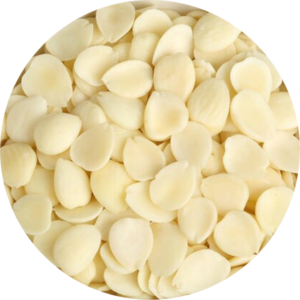 | It either serves to reinforces the effect of other ingredients or it moderates their toxicity. | It aids digestion, removes plaque and expels worms |
| Cang Zhu |  | Cang Zhu is the dried rhizome of Atractylodes, it is a perennial erect herb found mostly in Korea, Russia and China. | Cang Zhu covers meridians of spleen, stomach and liver. Main functions are to dry damp and strengthen spleen, expel pathogenic wind and cold, improve eye sight. |
| Chen Pi | 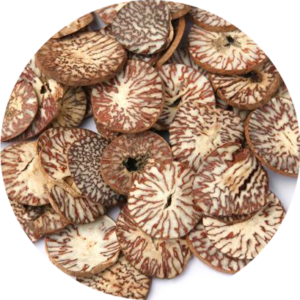 | Chen Pi has been used in Chinese Medicine for over two thousand years as a Qi moving herb. This herb has clinical functions of regulating Qi, enhancing digestive functions, eliminating Dampness and Phlegm in terms of the concept of Chinese medicine. | It is commonly used for improving digestion, relieving some digestive or respiratory conditions due to Dampness or Phlegm stagnation, such as nausea, vomiting, abdominal bloating, diarrhea, or cough. |
| Chi Shao | 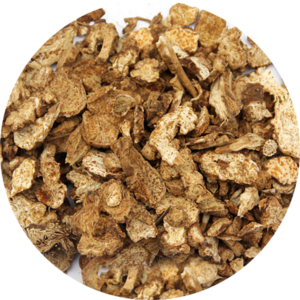 | Dried Red Peony (Chi Shao) is the root of Paeonia lactiflora Pall, part of the family Ranunculceae. | Invigorates the Blood, dispels Blood Stasis and relieves pain. Clears Heat and cools the Blood. Clears Liver Fire and relieves eye pain. Reduces swelling from sores and abscesses. |
| Chuan Lian Zi | 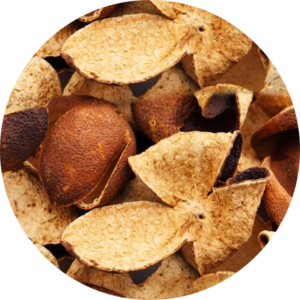 | Chuan Lian Zi is a traditional Chinese medicinal herb. | It is used to promote the flow of Qi, clear damp-heat, clear liver heat, kills parasites and regulate Qi. Chuan Lian Zi benefits stomach health and supports a healthy immune system. Chuan Lian Zi has analgesic anti-parasitic, anti-fungal and anti-inflammatory effects. |
| Chuan Xu Duan | 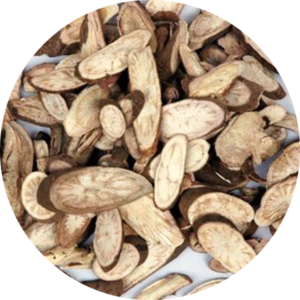 | It is a common herb for soreness and pain in lumbar and knees, atrophy-flaccidity and limpness of lower limes caused by deficiency of liver and kidney | It tonifies the liver and kidneys, strengthens the sinews and bones, stops uterine bleeding, calms the fetus, prevents miscarriage, promotes the movement of blood, alleviates pain, generates flesh, reconnects the sinews and bones, reduces swellings, abscesses and sores. |
| Da Fu Pi | 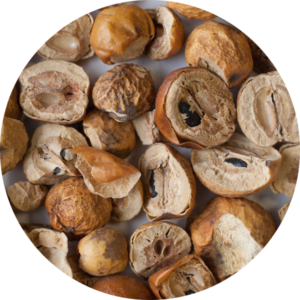 | Da Fu Pi is acrid, lightweight, more moderately descends Qi and and disperses formless and formed Qi Stagnation. | In traditional Chinese medicine, it is used to promote the downward flow of qi, reduce food stagnation, ease the stomach, and subdue swelling. Compounds in the peel stimulate the central nervous system and the salivary, bronchial and intestinal glands. |
| Da Huang |  | Rhubarb Root (Da Huang) is an herb often used in Traditional Chinese Medicine | It clears heat, transforms dampness and promotes urination. Drains heat from the blood. Invigorates the blood and dispels blood stasis. Clears hear and reduced fire toxicity. |
| Da Hui Xiang |  | Da Hui Xiang, also Ba Jiao Hui Xiang, or the Star Anise Fruit in English, is a fantastic little creation of nature. This is one of our favorite herbs, with its deep licorice-like aroma and fascinating design. | It benefits the reproductive, urinary and musculoskeletal systems. |
| Da Zao |  | Da Zao, jujube or Chinese date, is not only a medicinal herb in Chinese medicine but also a tasty fruit. Its sweet and warm properties make it a favorite among many. The jujube can be consumed alone as a snack or added to foods. | It builds blood and calms the spirit/mind, treating irritability and insomnia. Finally, Da Zao harmonizes formulas, reducing the undesired and harmful effects of harsh herbs and helping the herbs in a formula work together more effectively. |
| Dong Gua Pi | 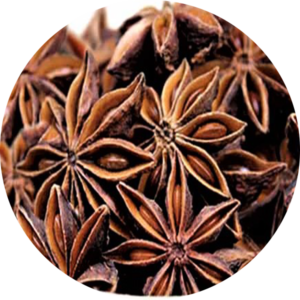 | Dried Watermelon Peel (Dong Gua Pi) is a type of herb native to China. The fruit usually ripens in the late summer or early autumn, with the peel removed after the fruit has ripened and allowed to dry naturally in the sun. This has sweet and slightly cold properties. | Promotes Urination, Clears Heat, Reduces Edema and Swelling For edema usually due to damp heat, abdominal distention, urinary difficulty and summer heat disorders. |
| Dan Dao Chi | 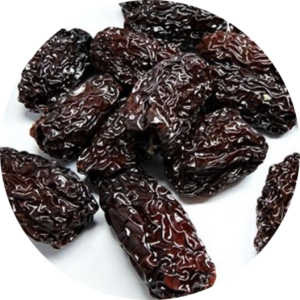 | Dao Chi San is a 4-ingredient Chinese Medicine formula with Akebia Stems (Mu Tong) as a principal ingredient. Invented in 1119 AD | Its main actions are: 1) clears the Heart and 2) promotes urination. |
| Dang Shen |  | Dang shen is a dried root. · It is produced in the Northeast of China, North of China, Northwest of China, Sichuan. | Dang shen has been used for the following conditions: -Promoting blood flow. -Treating vascular disease. -Improve circulation by causing vasodilation. -Inhibiting platelet aggregation. -Decreasing clotting. -Interfering with extrinsic blood coagulation. -Mimicking the activity of antithrombin III. -Promoting fibrinolytic activity. |
| Dong Quai | 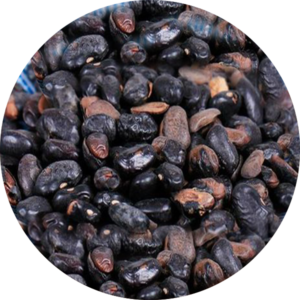 | Dong quai (Angelica sinensis) is a plant that has been used for a variety of conditions, with little evidence. It may be unsafe when too much is consumed. | Dong quai is used for menstrual cramps, premenstrual syndrome (PMS), and menopausal symptoms. It is also used orally as a “blood purifier”; to manage hypertension, infertility, joint pain, ulcers, “tired blood” (anemia), and constipation; and in the prevention and treatment of allergic attacks. |
| Du Zhong |  | Du Zhong or E. ulmoides is commercially available as a combination product or alone as a capsule, tablet, powder, or tea, primarily for treating hypertension | Du-Zhong is used as a functional food reinforcing the muscles and lungs, lowering blood pressure, preventing miscarriages, improving liver and kidney tone, and increasing longevity. |
| Ban Lan Gen | 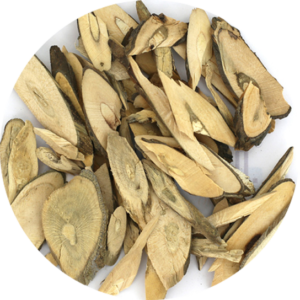 | Ban-Lan-Gen (BLG) is a traditional Chinese herbal medicine | It is used for the prevention and treatment of virus-related respiratory diseases such as influenza virus infection |
| Bai Mao Gen |  | Bai Mao Gen/Imperata/ Rhizoma Iinperata is sweet in flavour and cold in nature | It is primarily used for haematuria. It also can clear heat, promote urination and generate fluid. Bai Mao Gen has antibacterial properties and it can combat both staphylococcus aureus and bacillus dysenteriae. it can also treat vomiting, febrile diseases, edema, bleeding ans dysuria. |
| Bei Xing Ren |  | It is used by Chinese herbalists to relieve bronchial problems. These seeds also known as bitter almonds. | It is a Traditional Chinese Herb that was used to relieve cough, expel phlegm and ease breathing. |
| Bei Sha Shen |  | Bei Sha Shen is also known as Four Leaf Lady-Bell Root. It can be used to benefit the Lungs and Stomach. | Bei sha shen clears lung heat, tonifies yin and stops cough. It acts as an expectorant and also helps to lower fevers. |
| Fang Feng |  | Fang Feng translates to “wind prevention”, the pathogenic wind that can block one’s Qi and disturb the body’s natural harmony. According to Chinese medicine theory, the herb is meant to treat “wind moist disorders”. | Fang Feng is traditionally used as a remedy for constipation, suppression of urine, mental disorders, delirium, and hallucinations. |
| Fu Ling |  | It is Poria Mushroom. Fu Ling dispels dampness and benefits the Heart and Spleen; therefore it is often added to tonic herbs to promote restored organ function. | It- -Promotes Urination and Resolves Dampness. -Strengthens the Spleen. -Calms the Shen (Spirit) |
| Fu Shen |  | Fu Shen, also spelled Fushen, a Chinese god of happiness, the deification of a 6th-century mandarin. As a generic title, the name Fu Shen denotes the beneficent gods of Chinese mythology. | Fu Shen supports normal body fluid levels, promotes urination, is a heart tonic, benefits digestion, promotes sleep, boosts the immune system and benefits a positive mental state. It contains antidepressant, anti-inflammatory, antiviral and anti-tumor effects. |
| Gao Liang Jiang | 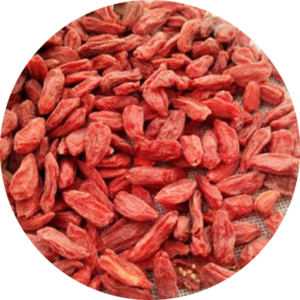 | In traditional Chinese medicine, (Gao Liang Jiang) galanga is associated with the Spleen and Stomach meridians, and has pungent and hot properties. | Gao Liang Jiang warms the Stomach and treats Cold epigastric pain with belching and vomiting. |
| Ge Gen | 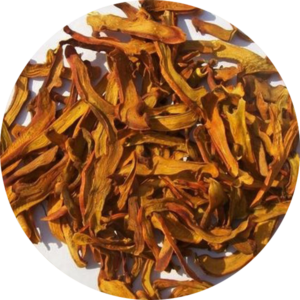 | Ge Gen is a traditional Chinese medicinal herb to dispel heat, raise the spleen yang and generate fluids. | Ge Gen covers meridians of spleen, stomach, lung and bladder. Main functions are resolving the flesh to bring down a fever, relieving muscles for promoting the eruption, helping produce saliva to slake thirst. |
| Gou Ji |  | Gou Ji covers meridians of liver, kidney, heart and bladder. Main functions are removing wind and dampness, toning up waist and feet, lubricating joint. | -Very Nutritious -Excellent Source of Antioxidants. -May Have Anti-Aging Benefits -May Help Prevent Cancer Growth. -May Improve Blood Sugar Control. -May Boost Energy Levels. -May Help You Lose Weight. -May Improve Cholesterol Levels. |
| Gu Sui Bu | 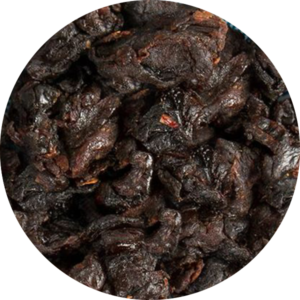 | In the traditional Chinese medicine, Gu-Sui-Bu [Drynaria fortunei (kunze) J. Sm] is been reported as a good enhancer for bone healing. | Gu Sui Bu is a traditional Chinese medicinal herb to clear heat, cool the blood, remove toxicity and tonify yang. Gu Sui Bu may support healthy blood lipid levels, benefits hair health, promotes bone health and healing, benefits joint health, may rid parasites such as tapeworms and supports healthy kidney function. |
| Gui Jia | 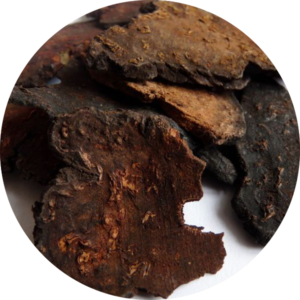 | Gui Jia is salty, sweet, slightly cold. | -Tonifies the Kidneys and strengthens bones. -Nourishes the blood and tonifies the heart. |
| Gui Yuan Rou |  | Dried Longan(Chinese Name:Gui Yuan Rou) is a very healthy food for both young and old persons.It can eat directly or it is also used for cooking/boiling | It is used for: -Excellent Stress Remedy, -Assist in Controlling Blood Pressure, -Helps in Weight Loss, -Prevents the development of Cancer, -Good for Bone Health, -Fight Anemia, -Heart health, -Healthy Metabolism, -Good for EyeSight, -Natural cure for Stomachache, -Beneficial for Oral Health, Sex Tonic, Anti-Ageing, -Wound Recovery Enhancer |
| He Shou Wu | 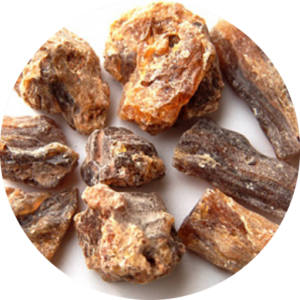 | He Shou Wu is a versatile herb in traditional Chinese medicine. Many people take it to promote general good health, especially in old age | This herb is used to treat various health conditions, such as diabetes, hair loss, heart disease, constipation, and cancer. |
| Hong Hua | 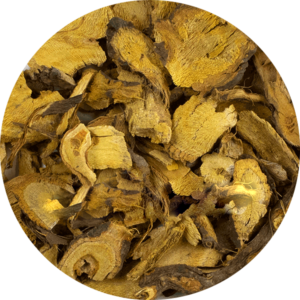 | Safflower, also known as Hong Hua in Traditional Chinese Medicine (TCM), is a herb used for both its medicinal properties, as well as cooking. The use of the flower and the oil of the seed is wide spread and is especially popular in many Asian dishes. | As a medicinal herb, the Hong Hua (safflower) has several benefits, namely for pain relief, a variety of gynaecological disorders, reduction of small abdominal masses, dermatological problems, and heart disease. |
| Hu Po |  | It is sweet and neutral. Traditionally, It is said to arrest tremors and palpitations and settle the spirit. | Hu Po’s attributes calm the spirit, move the blood, disinhibit the flow of water, transform stagnation and unblock the orifices. |
| Hu Zhang | 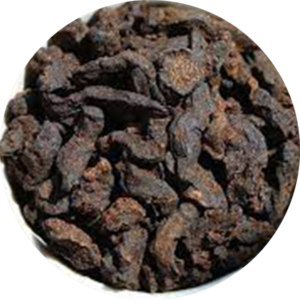 | Hu zhang is the Chinese name given to a plant with the scientific name of Polygonum cuspidatum. The root is used as medicine. | Hu zhang is commonly used by mouthy for conditions of the heart, liver, and digestive system and to reduce symptoms of menopause. It is also applied to the skin to help speed wound healing. |
| Huang Bai | 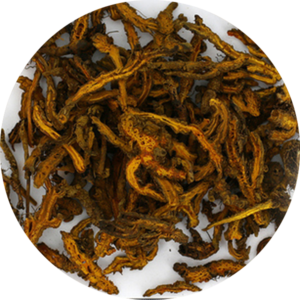 | Huang Bai is a popular Traditional Chinese Medicine | Huang Bai has been used to treat diarrhoea, jaundice, leucorrhoea, stranguria, and swelling of the knee and foot by clearing heat and drying dampness; sores, burns, and eczema by purging fire and detoxifying; and fever by clearing deficiency heat |
| Huang Jing | 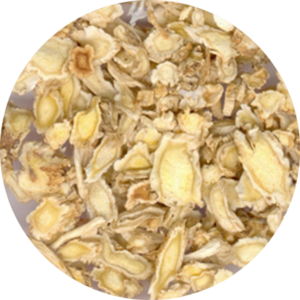 | Huang Jing is a traditional Chinese medicinal herb | It is used to support mental calmness and support a healthy cardiovascular system. |
| Huang Lian |  | Huang Lian (Rhizoma coptidis, RC) is a herb frequently used in many traditional formulas for properties of “clearing damp-heat, quenching fire, and counteracting poison” in Asia for centuries. | Used for treatment of diarrhea, vomiting, abdominal fullness, jaundice, high fever, toothache, diabetes, and eczema. |
| Jie Geng |  | Jie Geng or Radix Platycodi is also known as Balloon Flower Root or Playycodon Root and is a herb that transforms phlegm and stops coughing. | It supports respiratory health and benefits the throat. Jie Geng contains anti-inflammatory, antibacterial, expectorant and immune boosting properties. |
| Kuan Dong Hua | 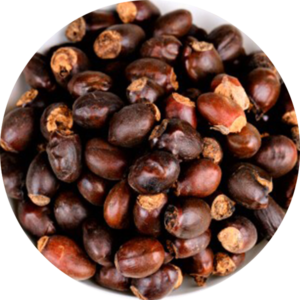 | Honey-prepared Tussilago Flower Mi Zhi Kuan Dong Hua has stronger Lung- moistening and cough-relieving actions | It is appropriate for cough or wheezing due to Lung Deficient |
| Lang Du |  | Lang Du is a Traditional Chinese Herb | -Eliminate phlegm, -alleviate pain, -dissipate food stagnation and -kill parasites |
| Li Zhi He |  | Li Zhi He (Leechee Nut) is Semen Litchi Chinensis. | Used for hernial pain and testicular disorders, groin pain, and bulging pain with swelling. Also used for running piglets sensations with an upward shooting sensation from the low abdomen to the chest region. |
| Ling Zhi | 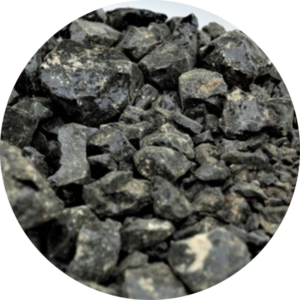 | ||
| Liu Dou | 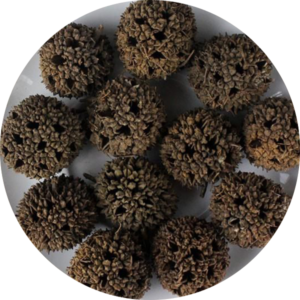 | ||
| Lu Hui |  | ||
| Lu Lu Tong |  | ||
| Ma Huang | 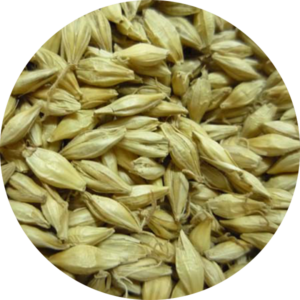 | ||
| Mai Dong | 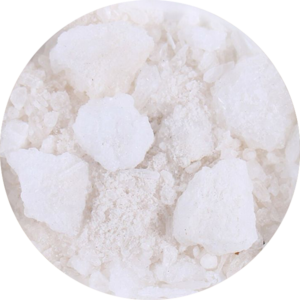 | ||
| Mai Ya |  | ||
| Mang Xiao | 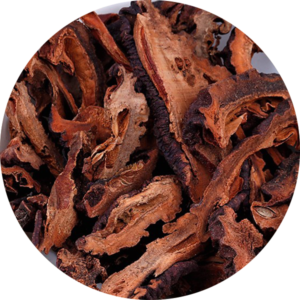 | ||
| Mei Gua Hua |  | ||
| Mu Gua |  | ||
| Mu Tong | 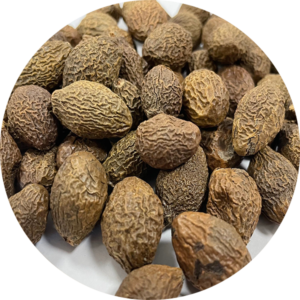 | ||
| Mu Xiang | 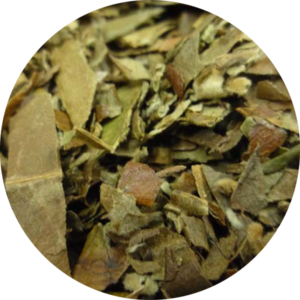 | ||
| Pang Da Hai |  | ||
| Pi Ba Yie |  | ||
| Pu Huang |  | ||
| Qin Jiao |  | ||
| Qing Dai | 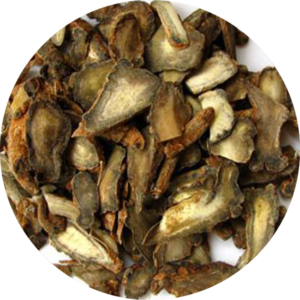 | ||
| Rou Gui |  | ||
| San Qi | 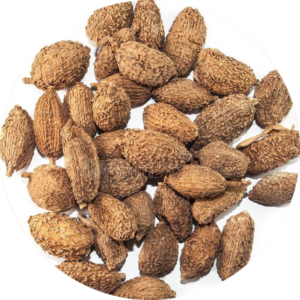 | ||
| Sang Ye | 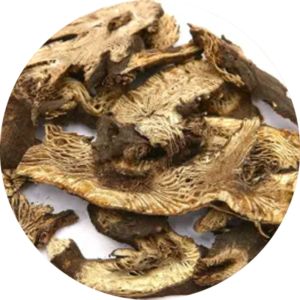 | ||
| Sha Ren | 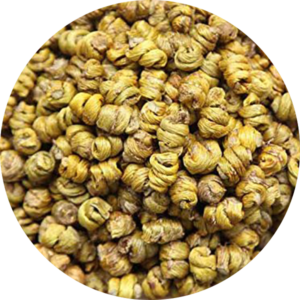 | ||
| Sheng Ma |  | ||
| Shi Hu |  | ||
| Si Gua Lo |  | ||
| Su Geng |  | ||
| Su Mu |  | ||
| Tai Zi Shen |  | ||
| Tian Hua Fen | 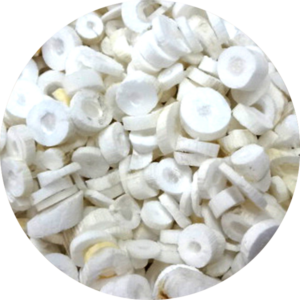 | ||
| Tian Ma | 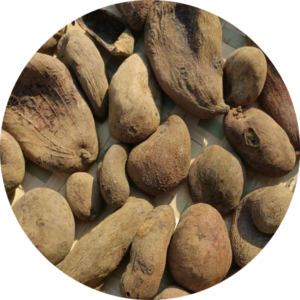 | ||
| Tong Cao | 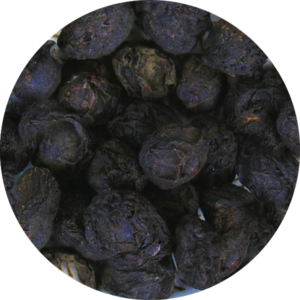 | ||
| Wu Bei Zi | 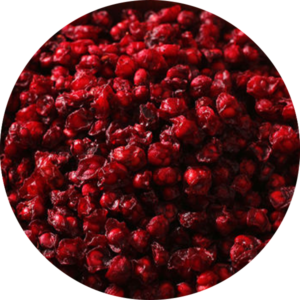 | ||
| Wu Mei | 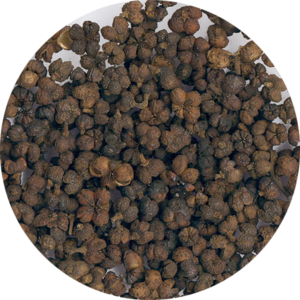 | ||
| Wu Wei Zi |  | ||
| Wu Zhu Yu | 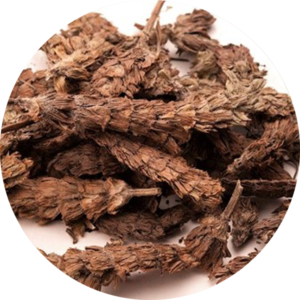 | ||
| Xi Xin | 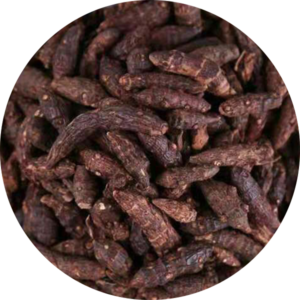 | ||
| Xia Ku Cao |  | ||
| Xiang Fu | 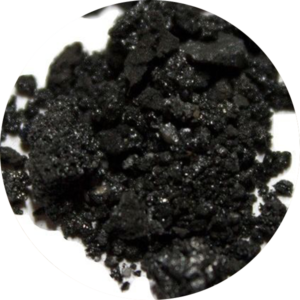 | ||
| Xin Yi | 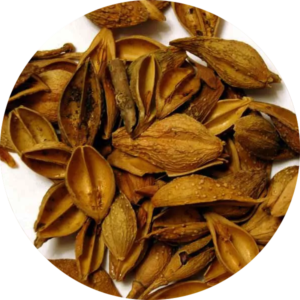 | ||
| Xue Yu Tan |  | ||
| Yin Qiao | 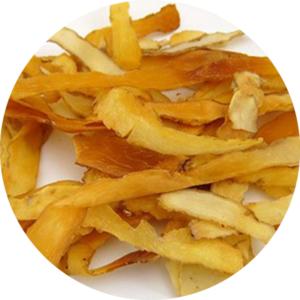 | ||
| Yu Jin | 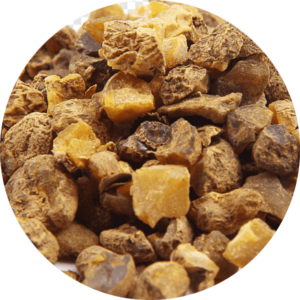 | ||
| Yu Zhu |  | ||
| Yuan Hu |  | ||
| Yuan Zhi | 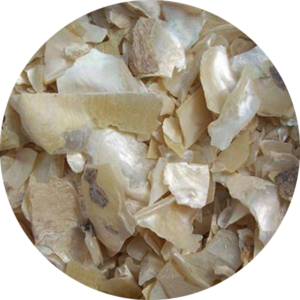 | ||
| Zhe Bei Man | 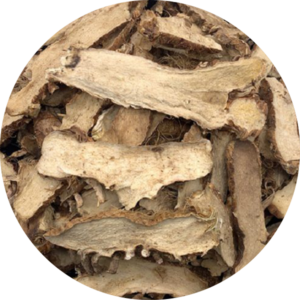 | ||
| Zhen Zhu Mu | 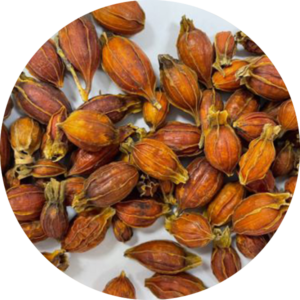 | ||
| Zhi Mu |  | ||
| Zhi Zi | 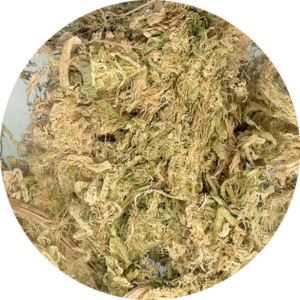 | ||
| Zhu Ling |  | ||
| Zhu Ru |  |

